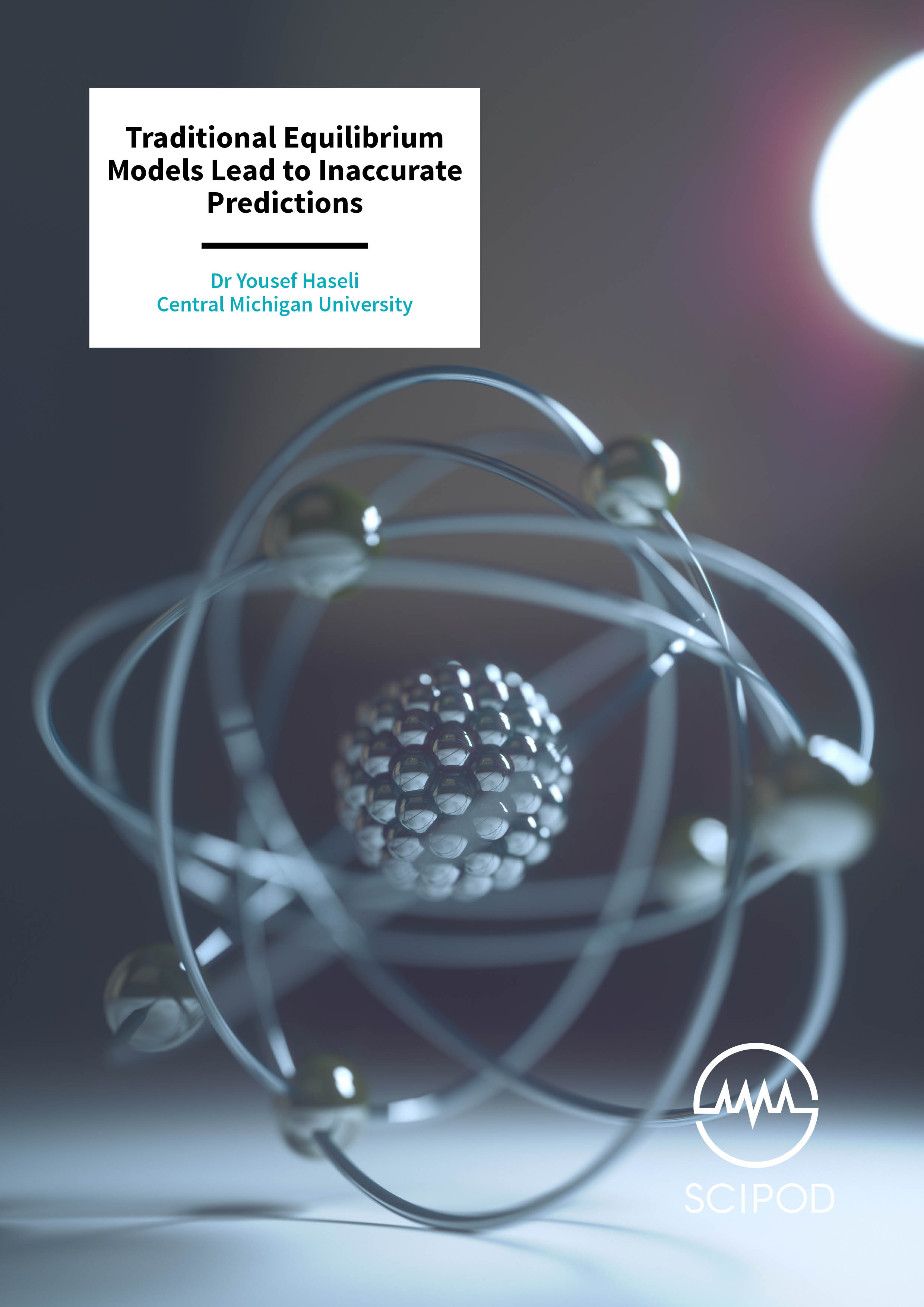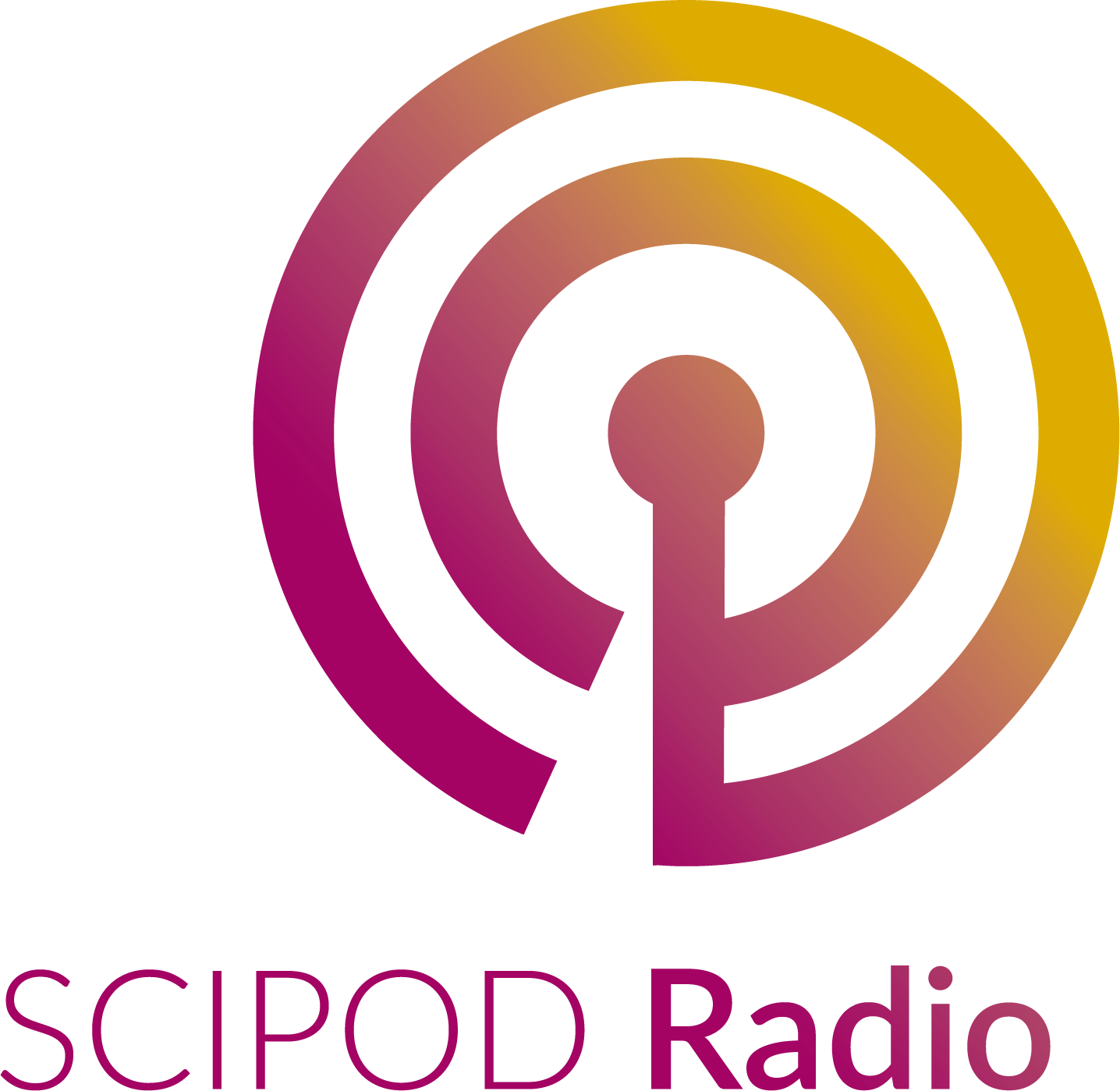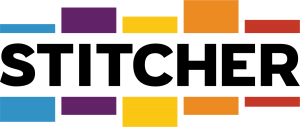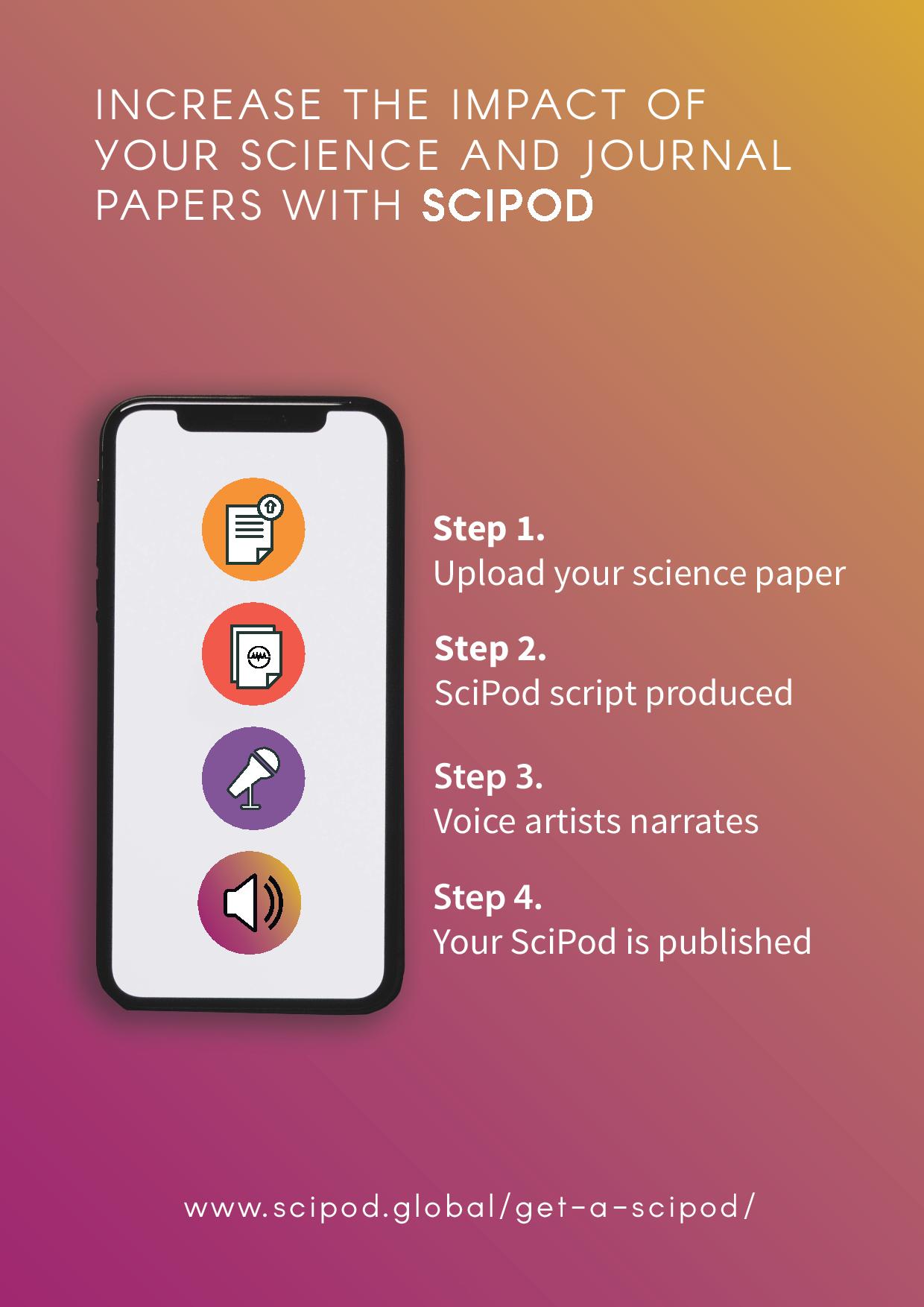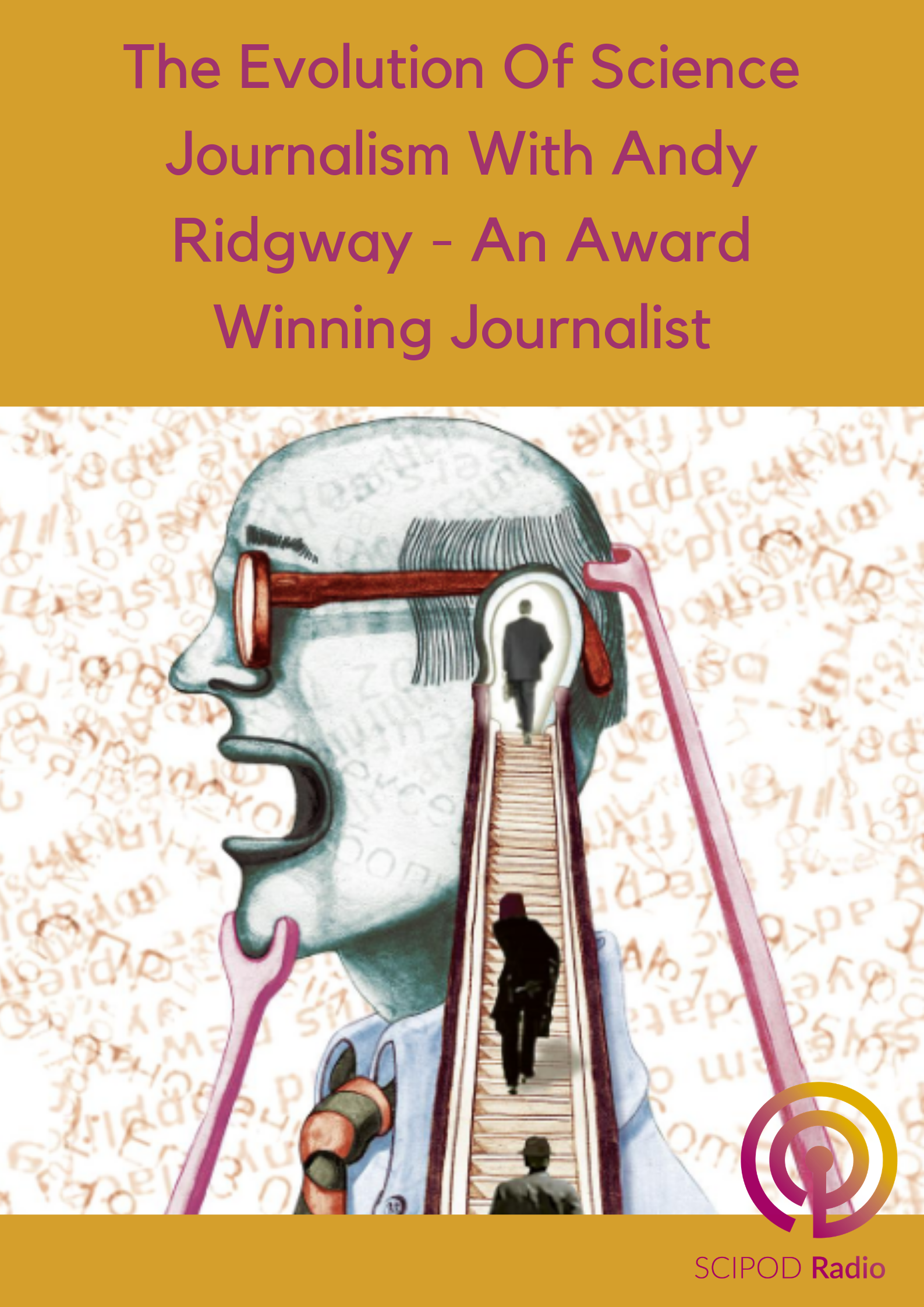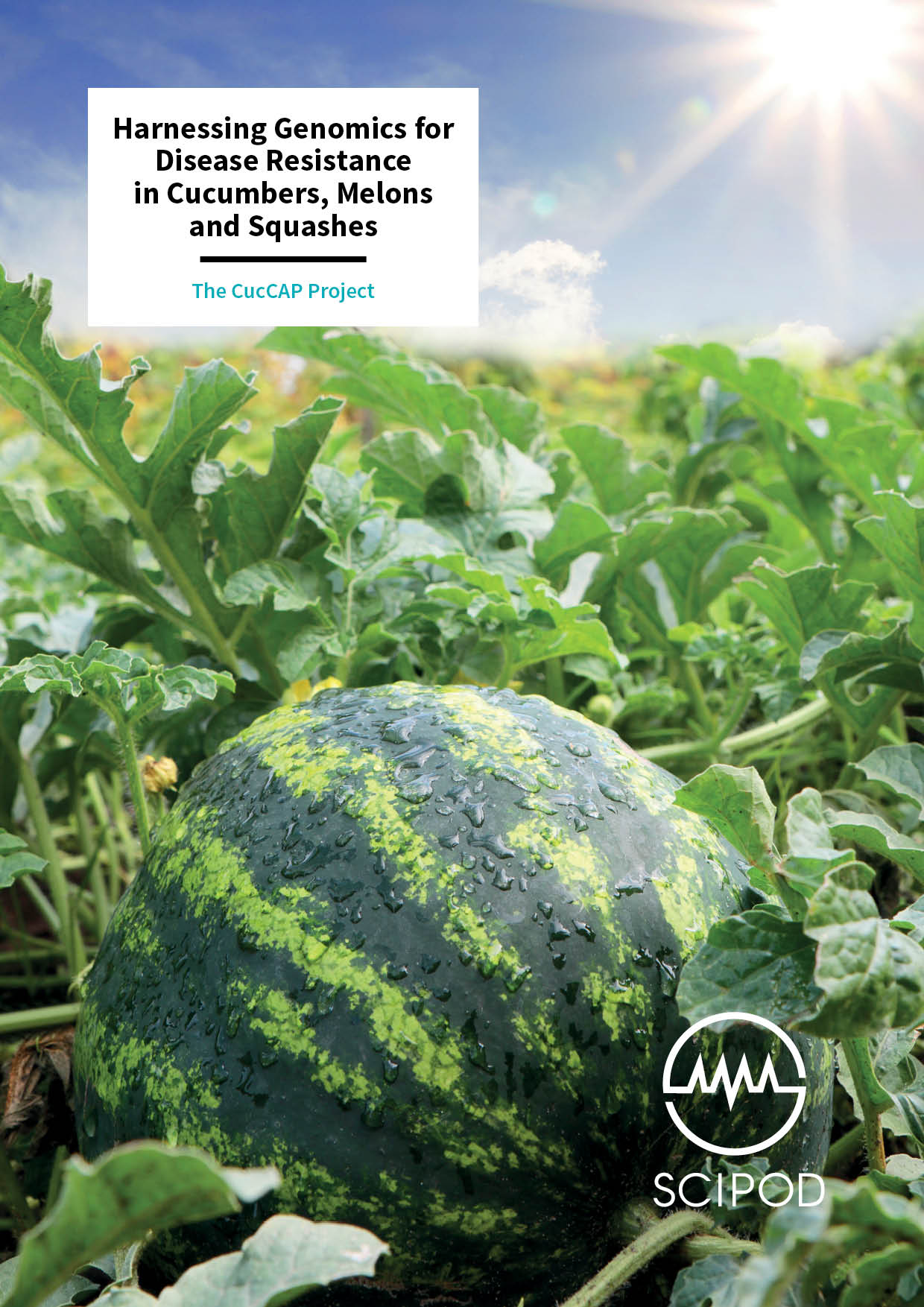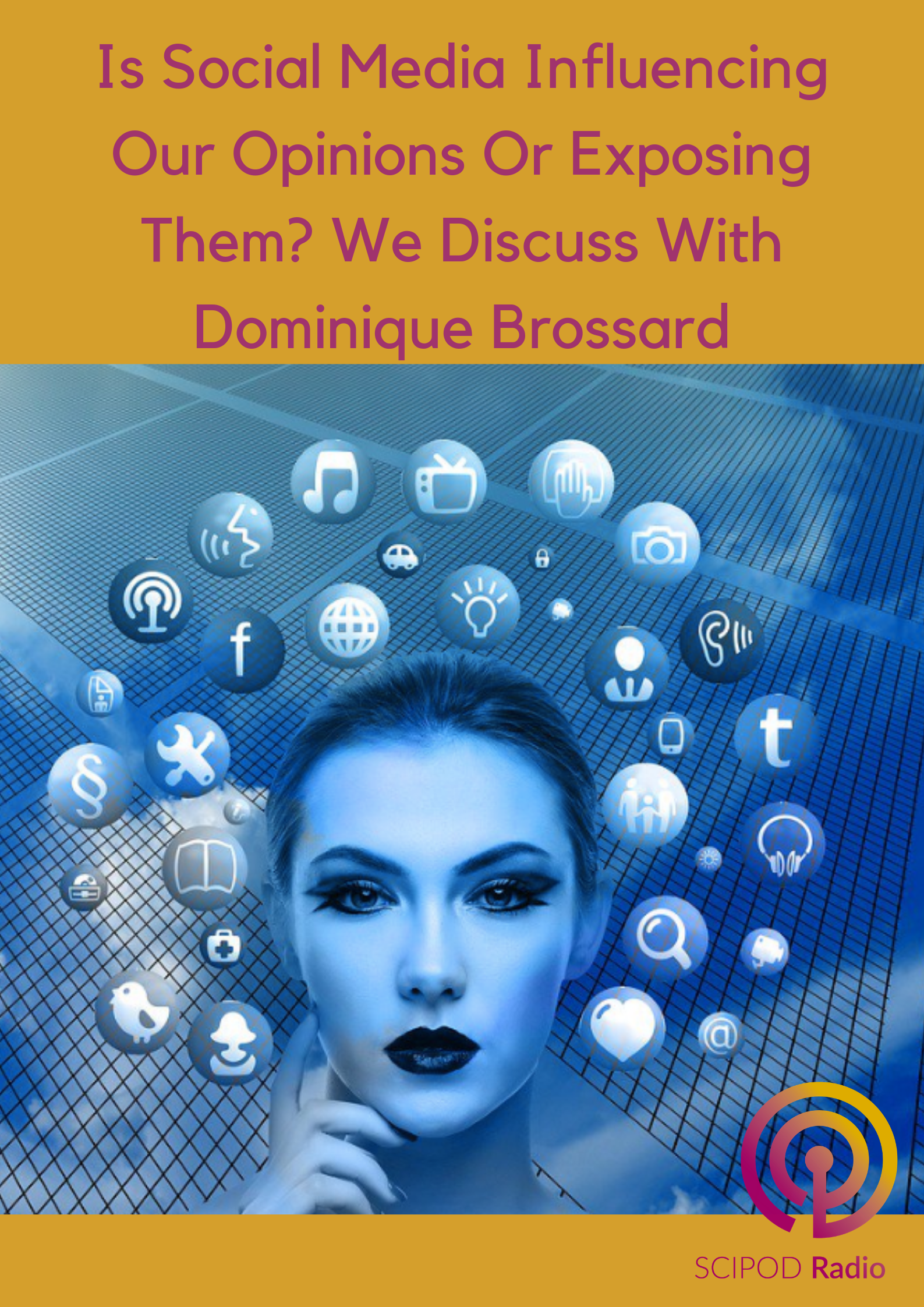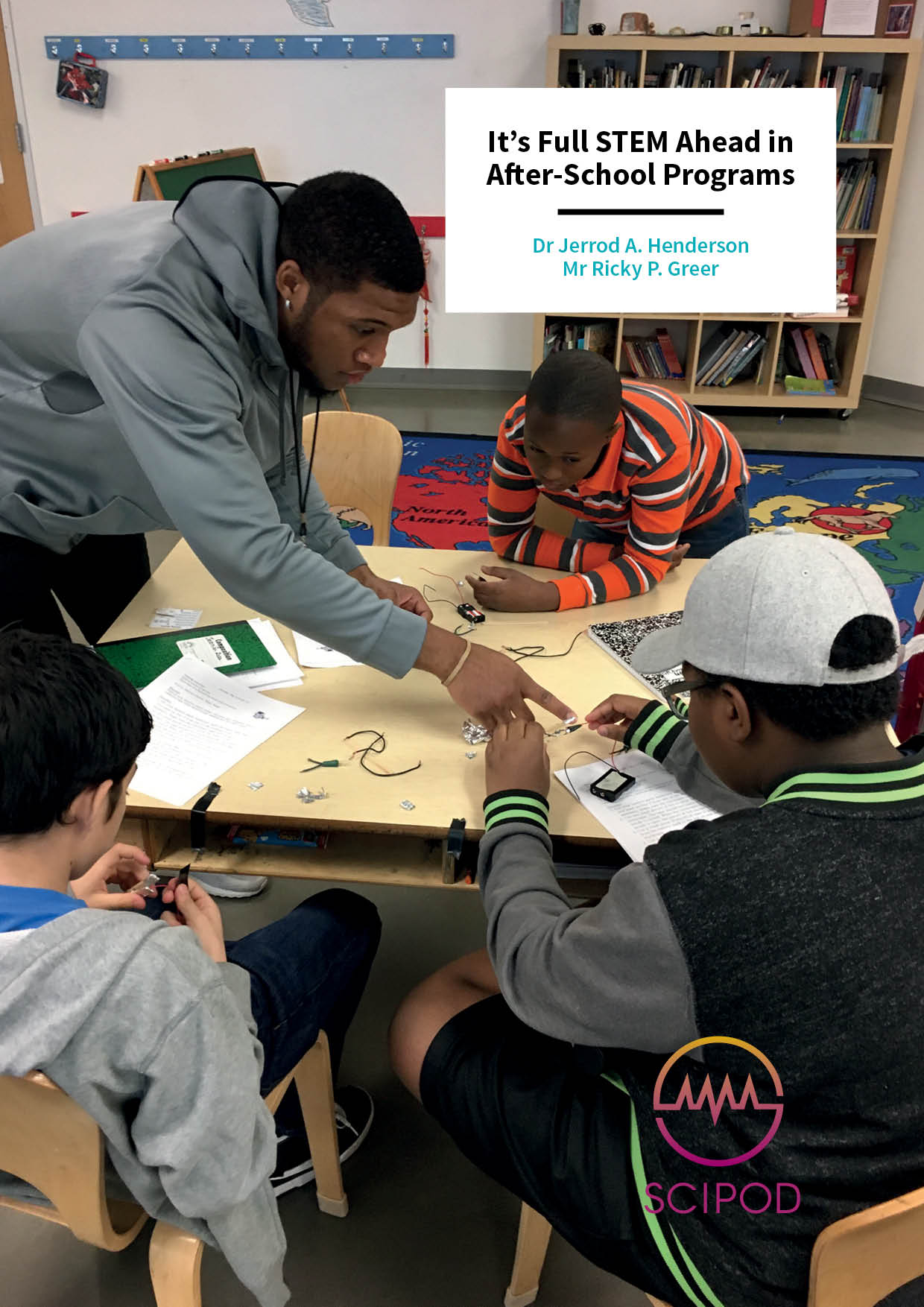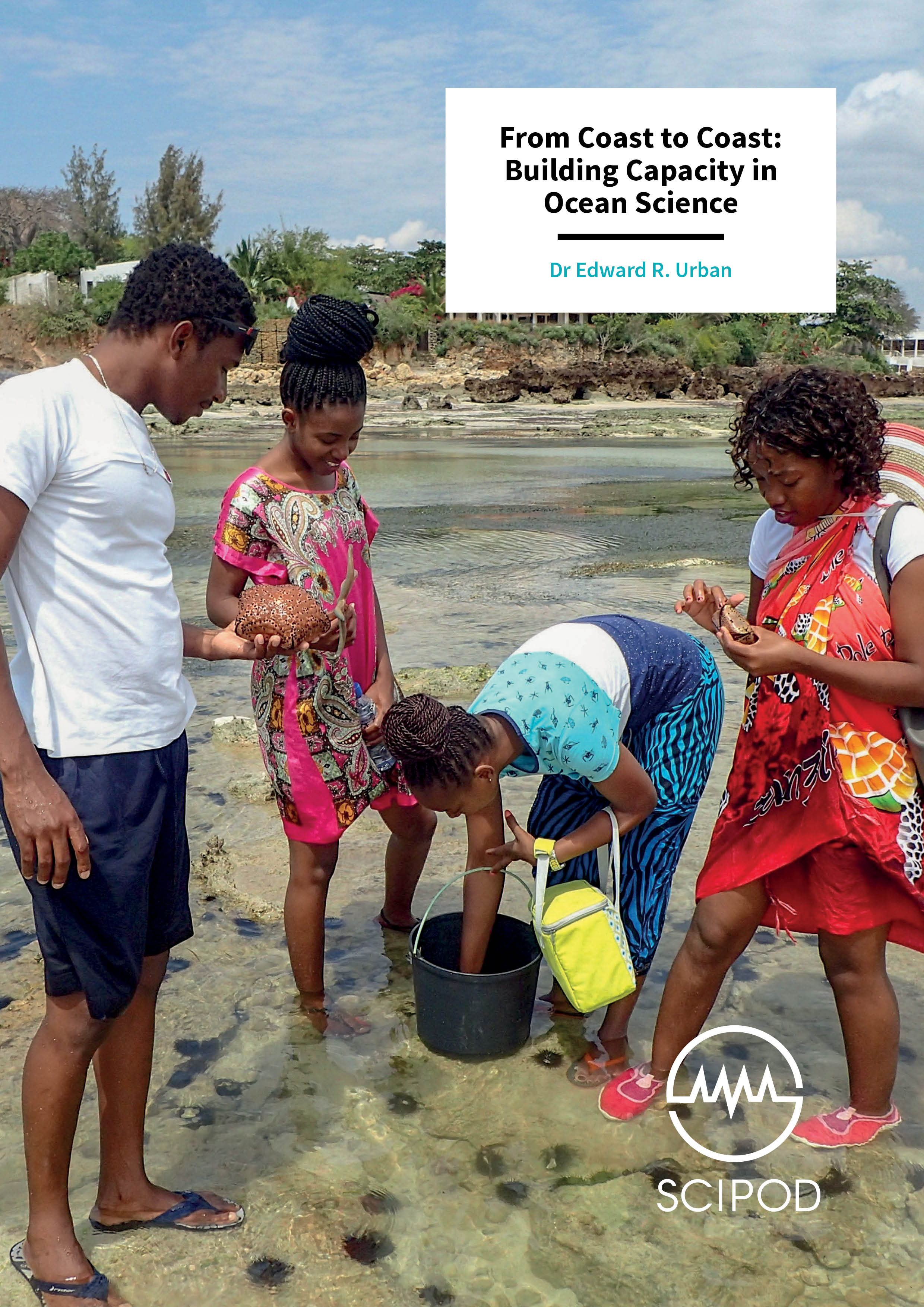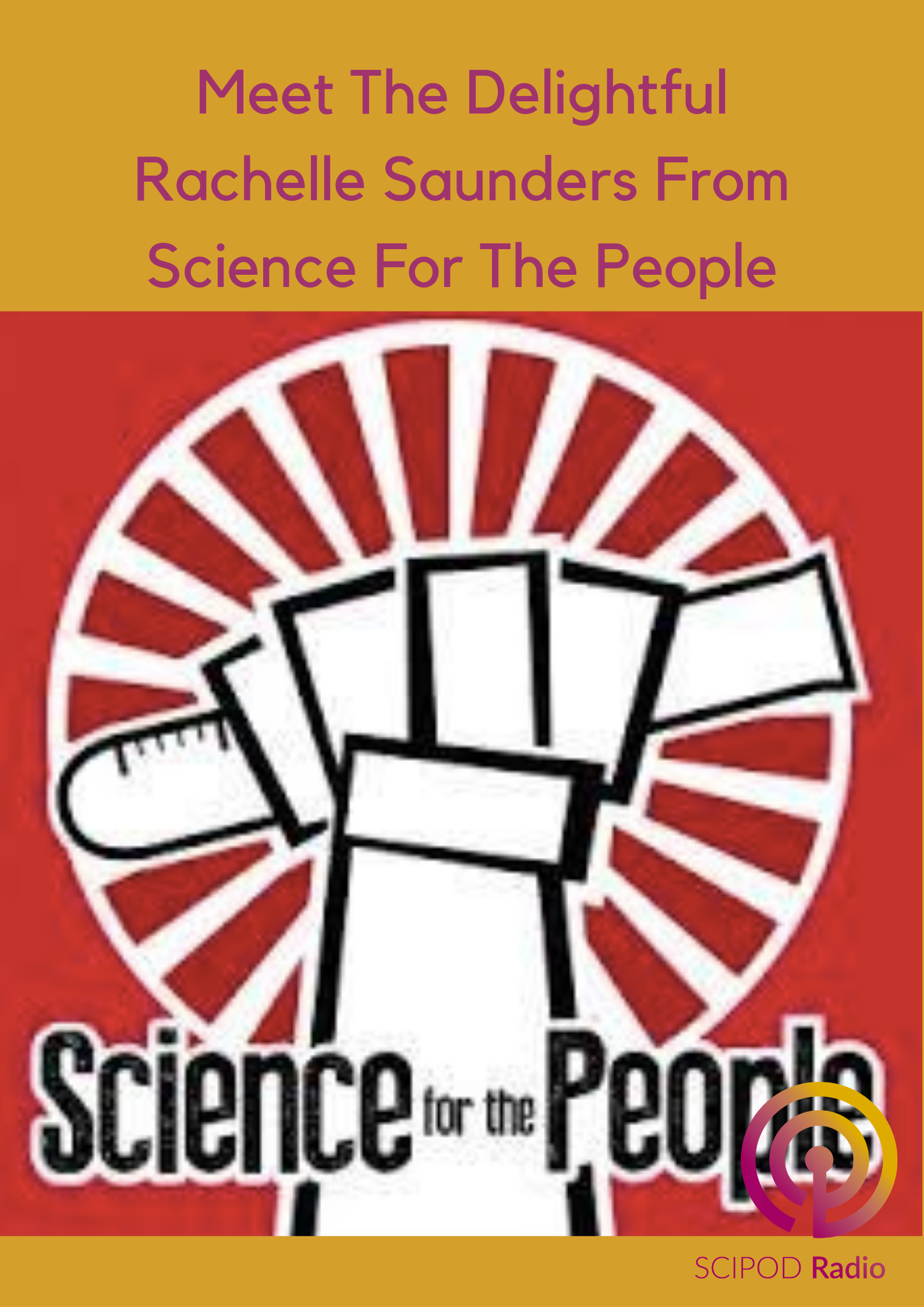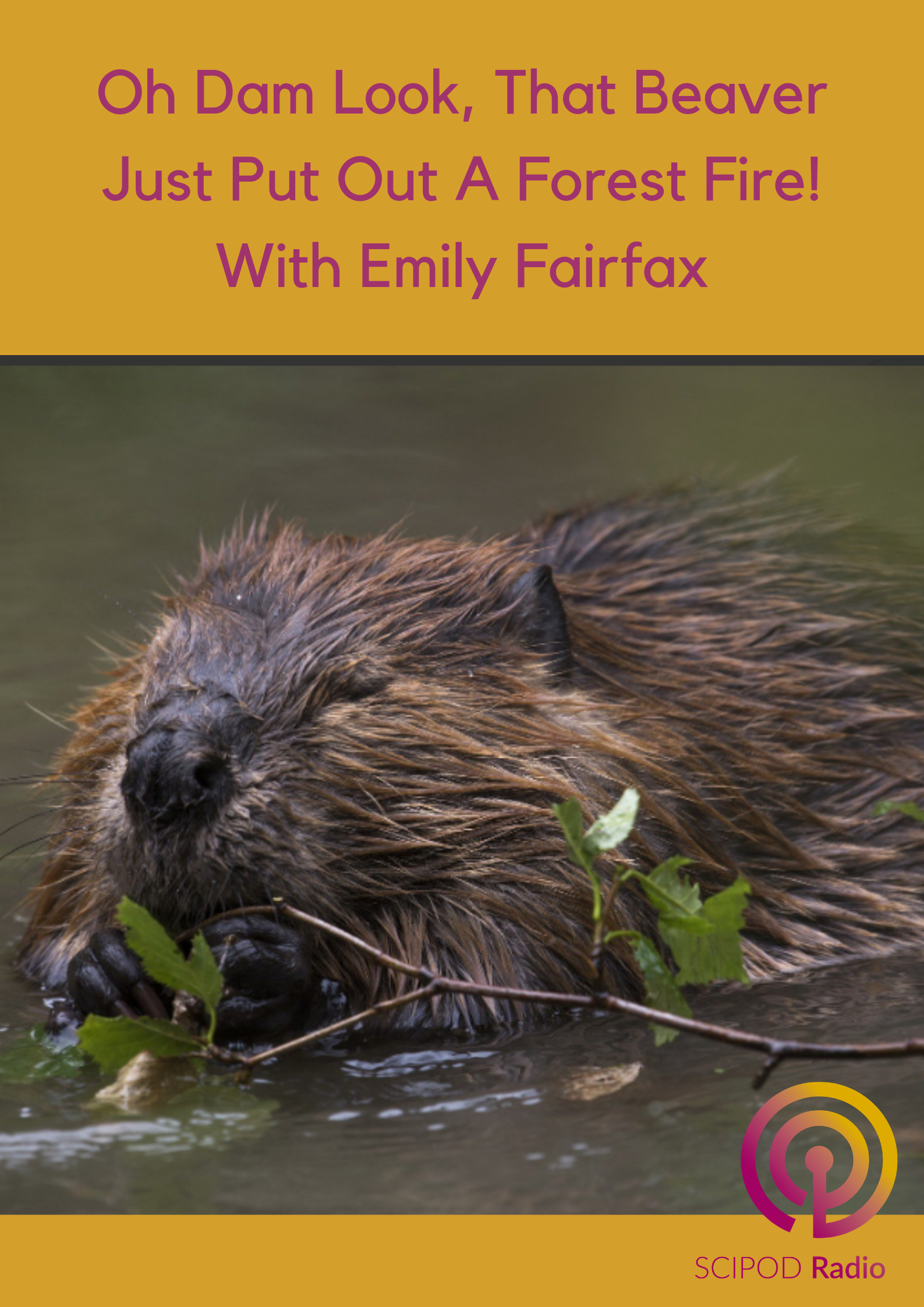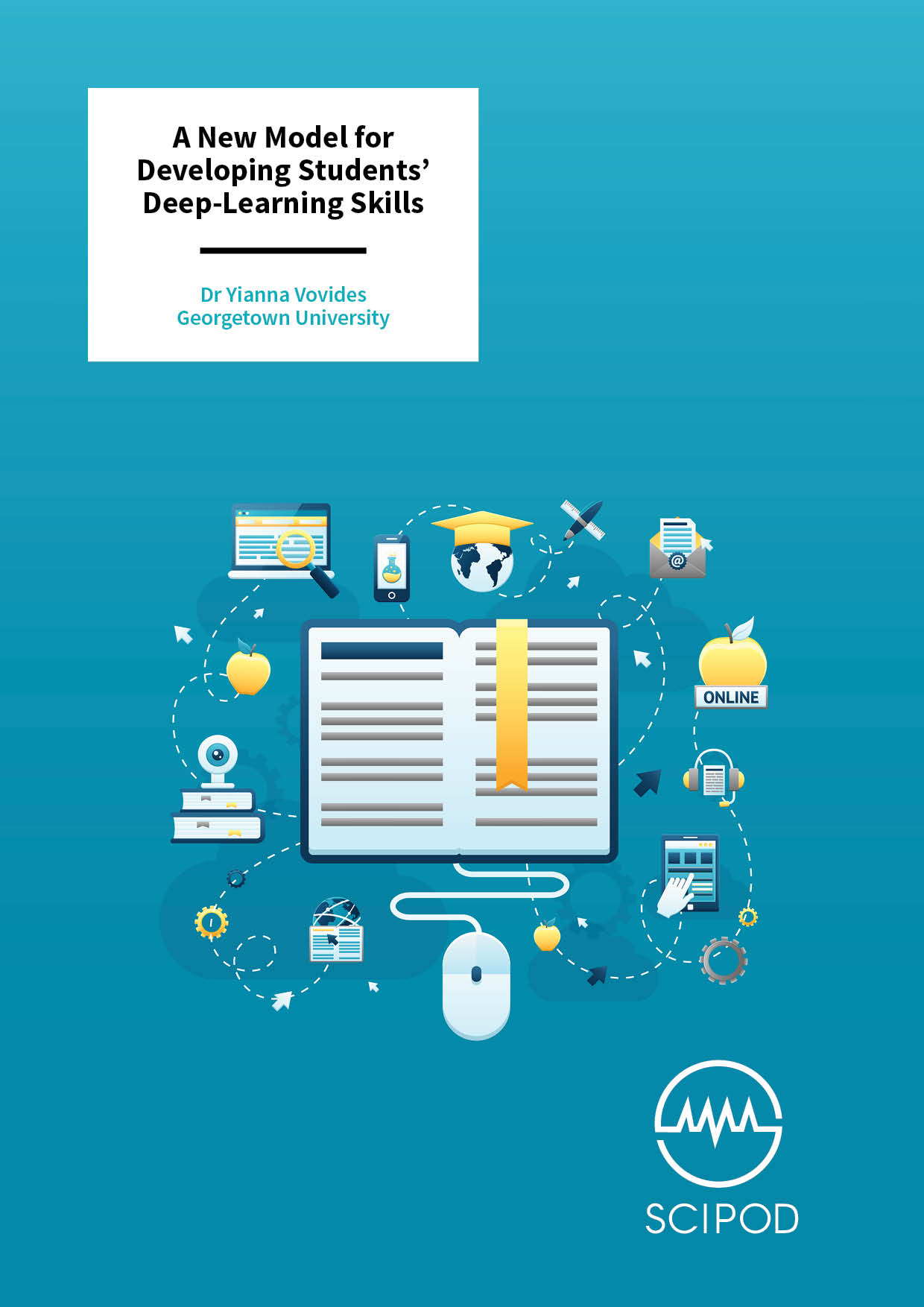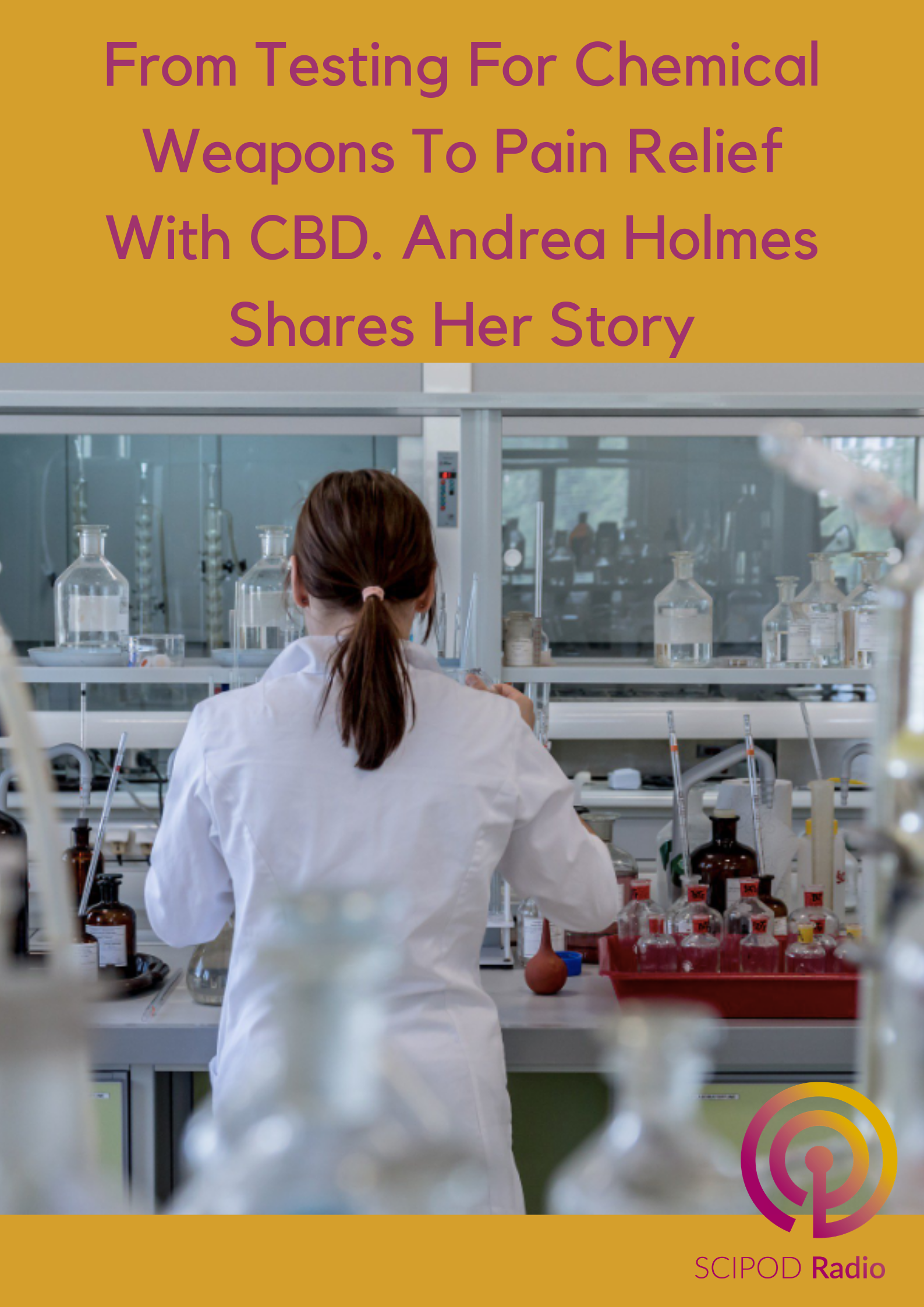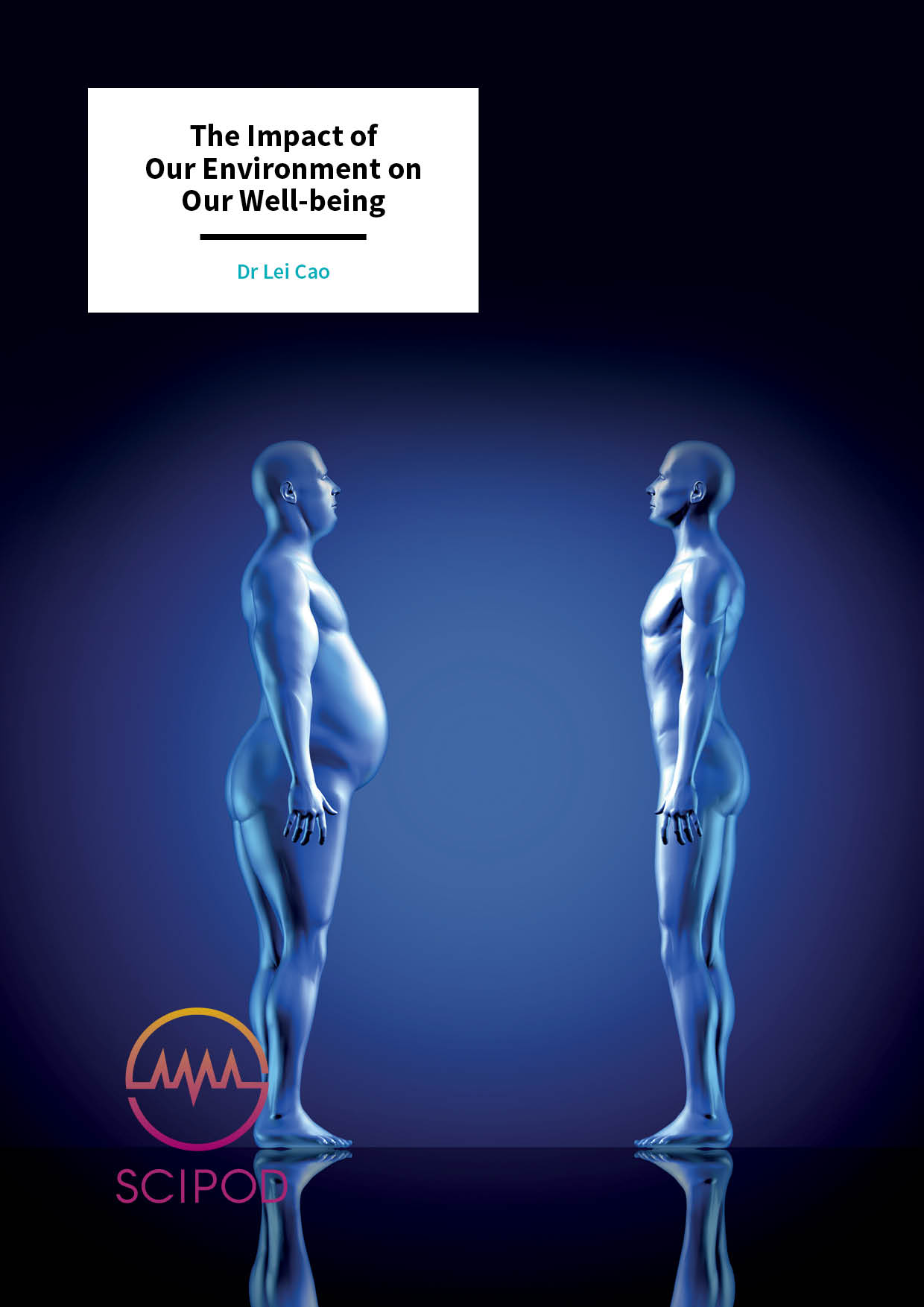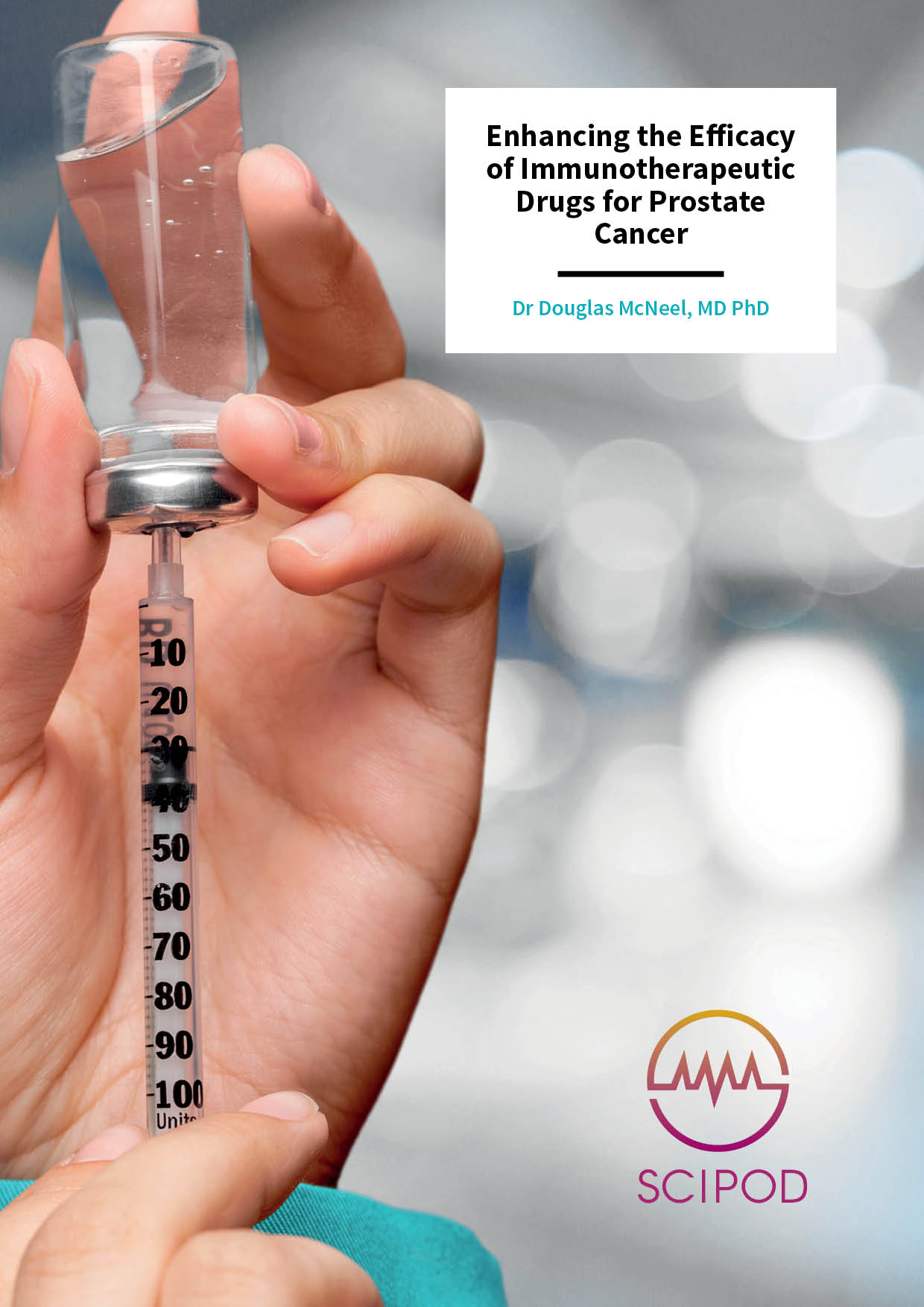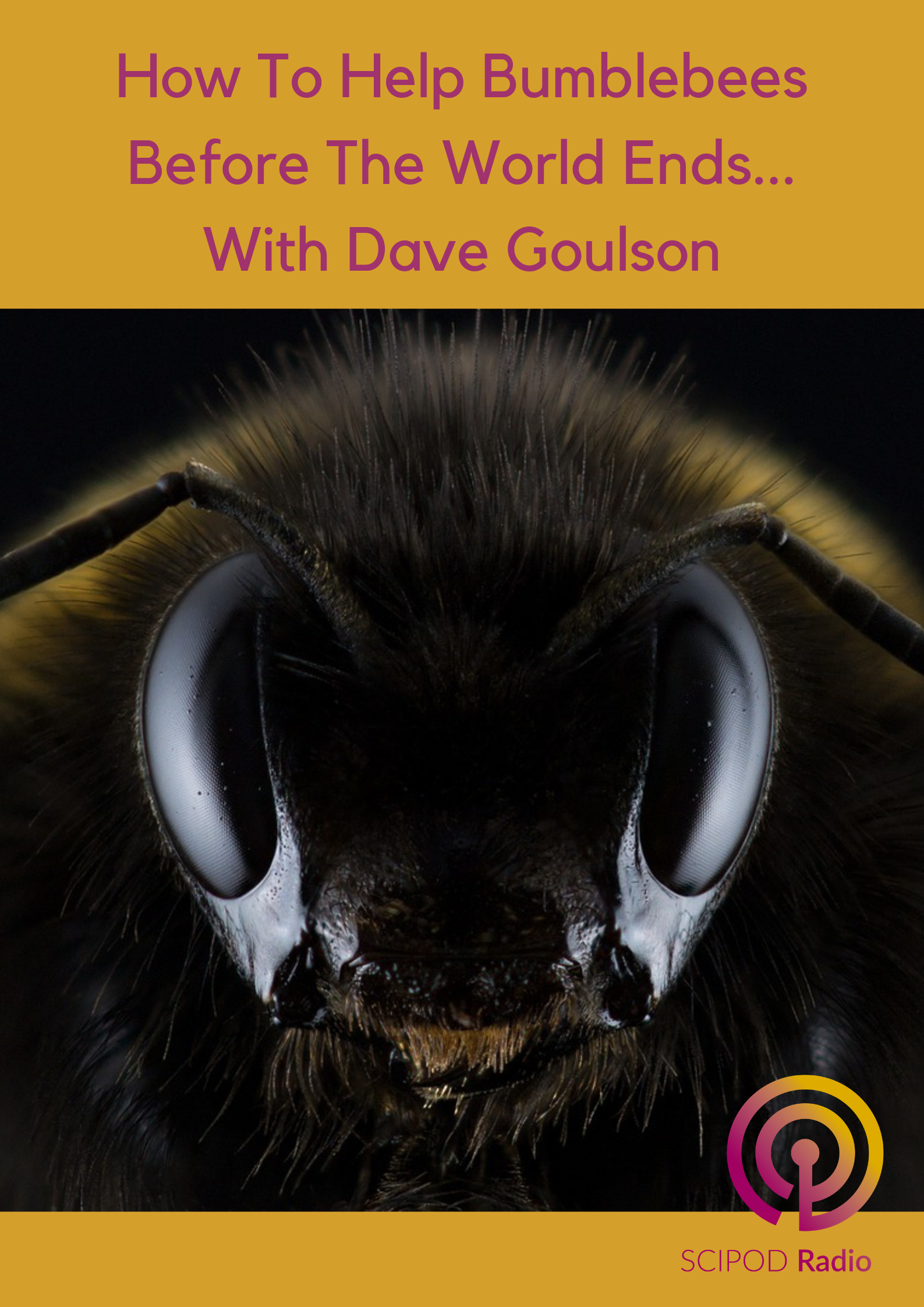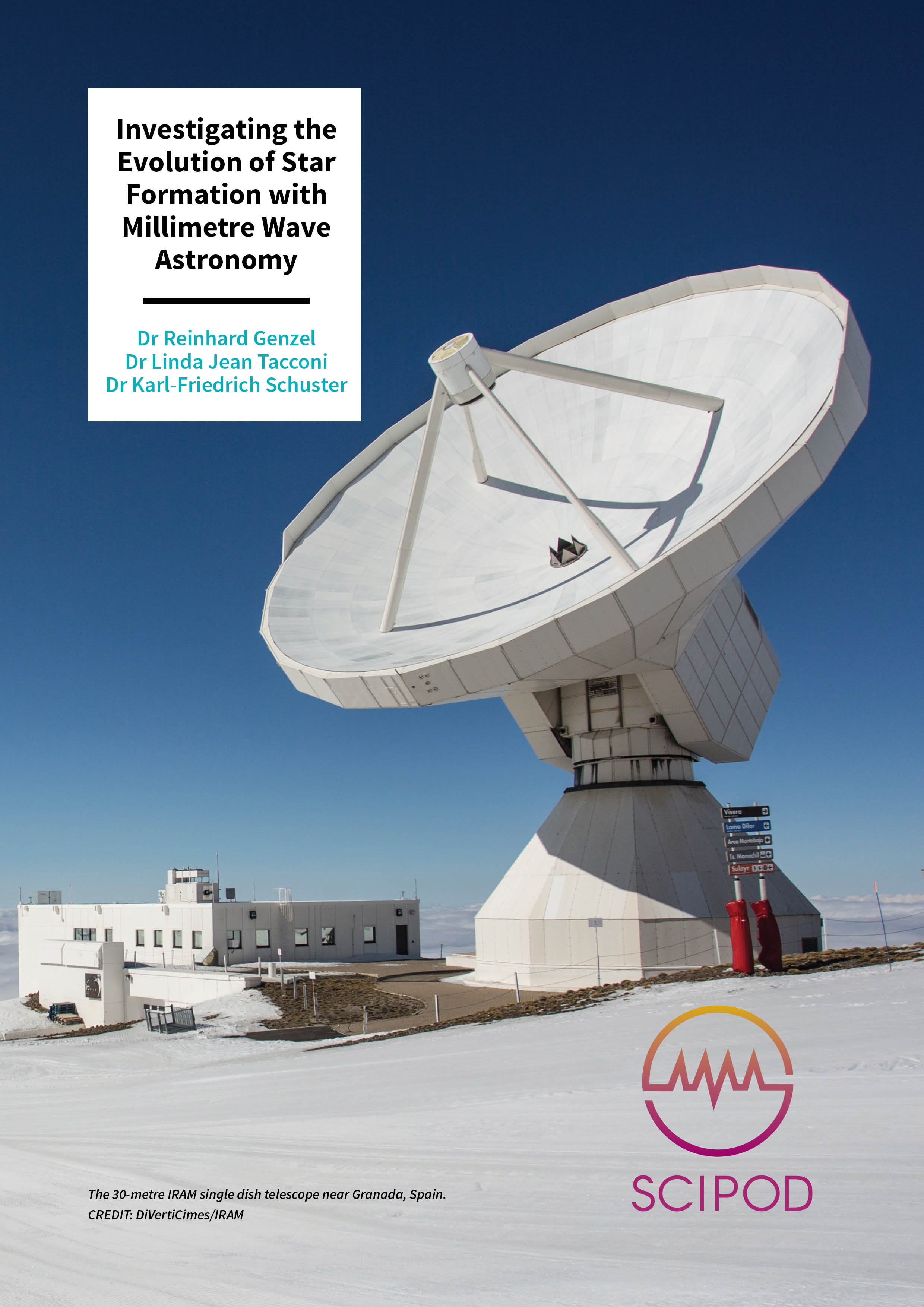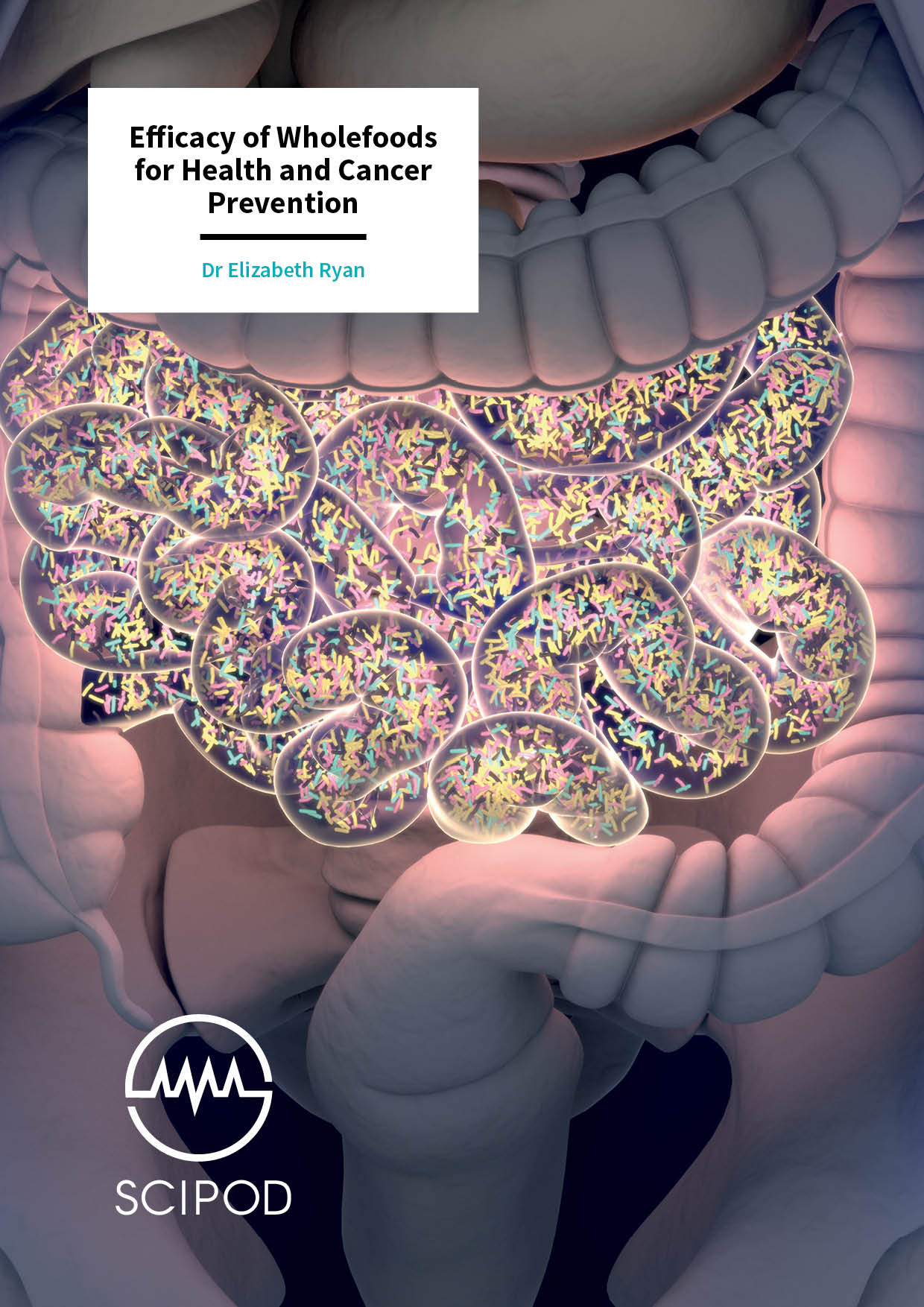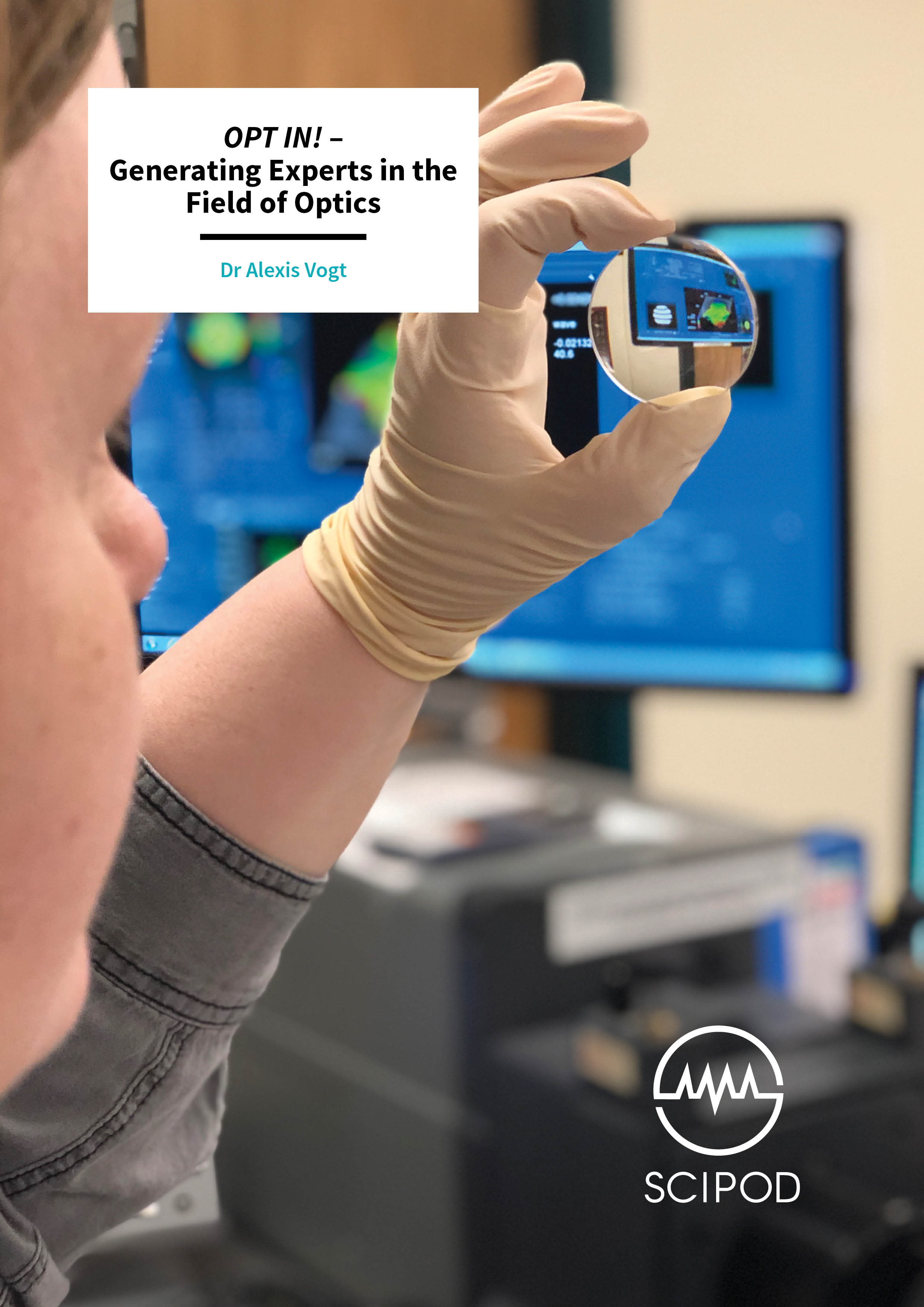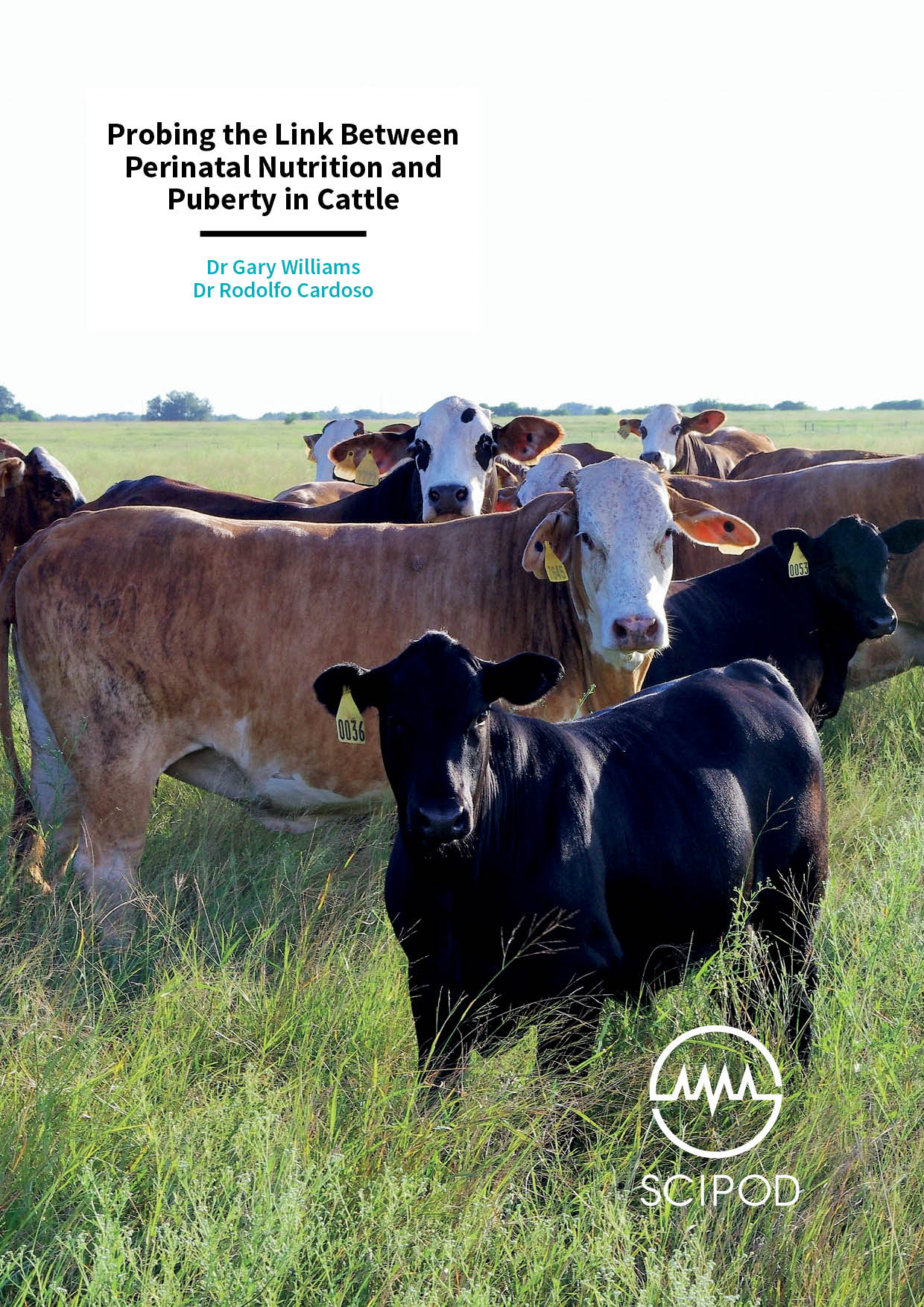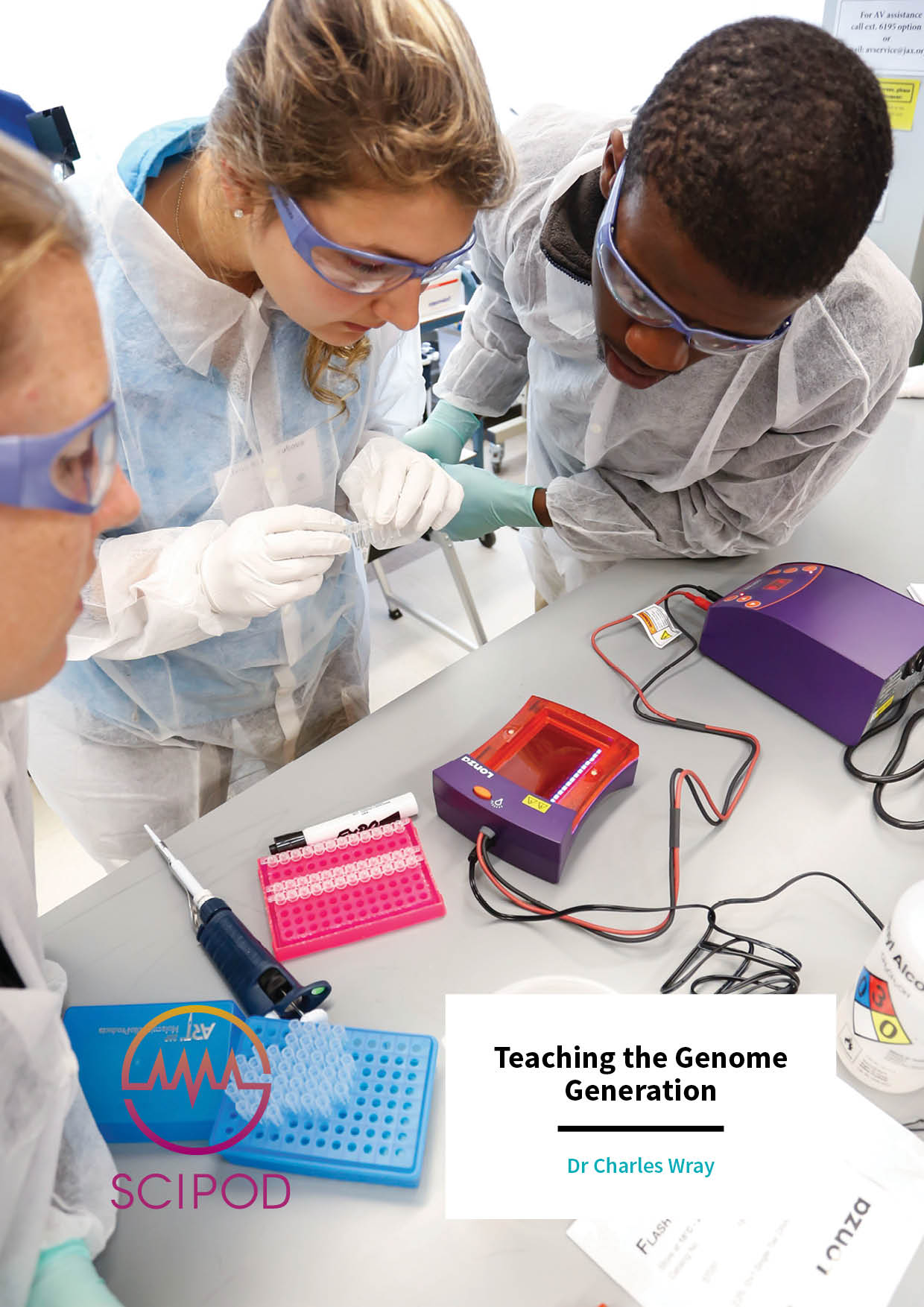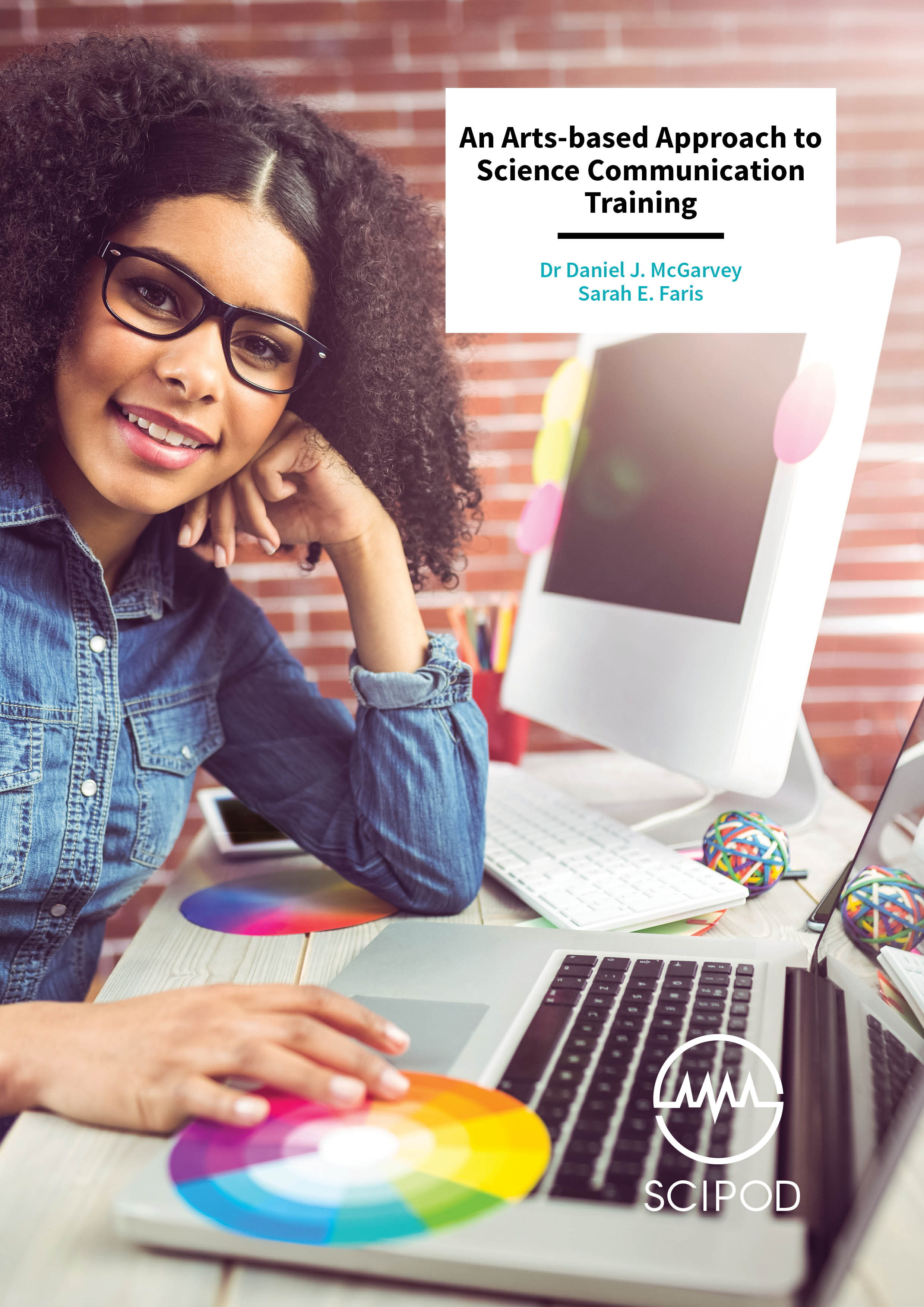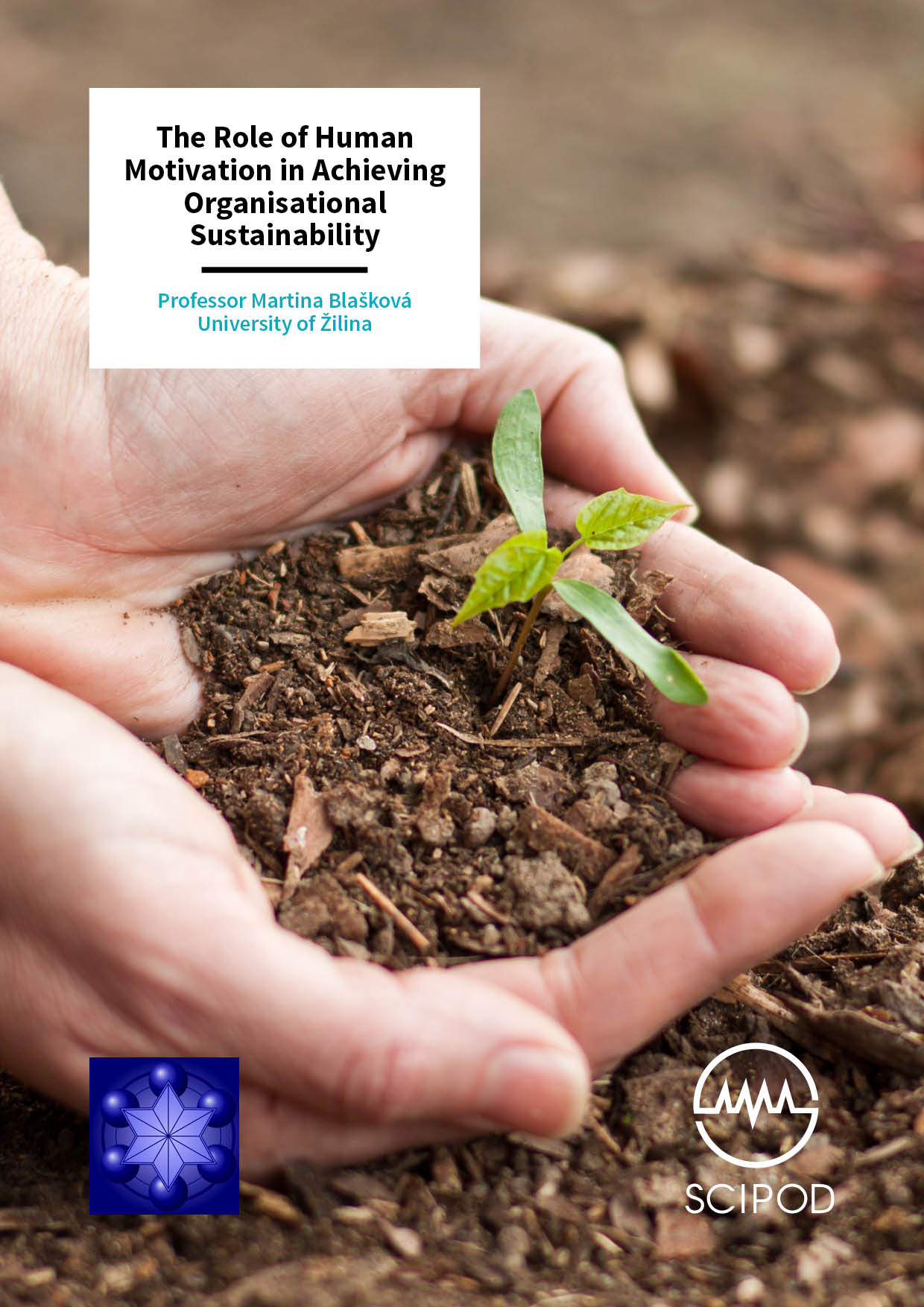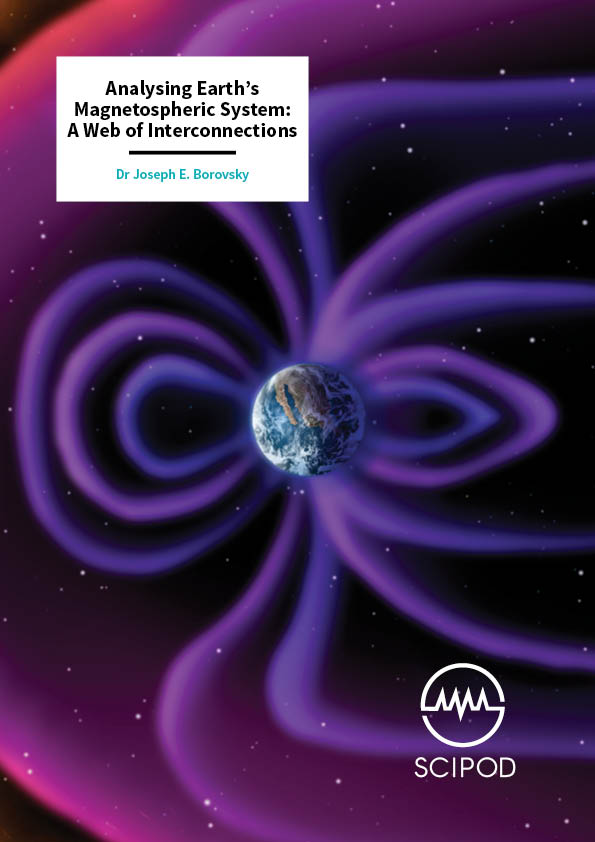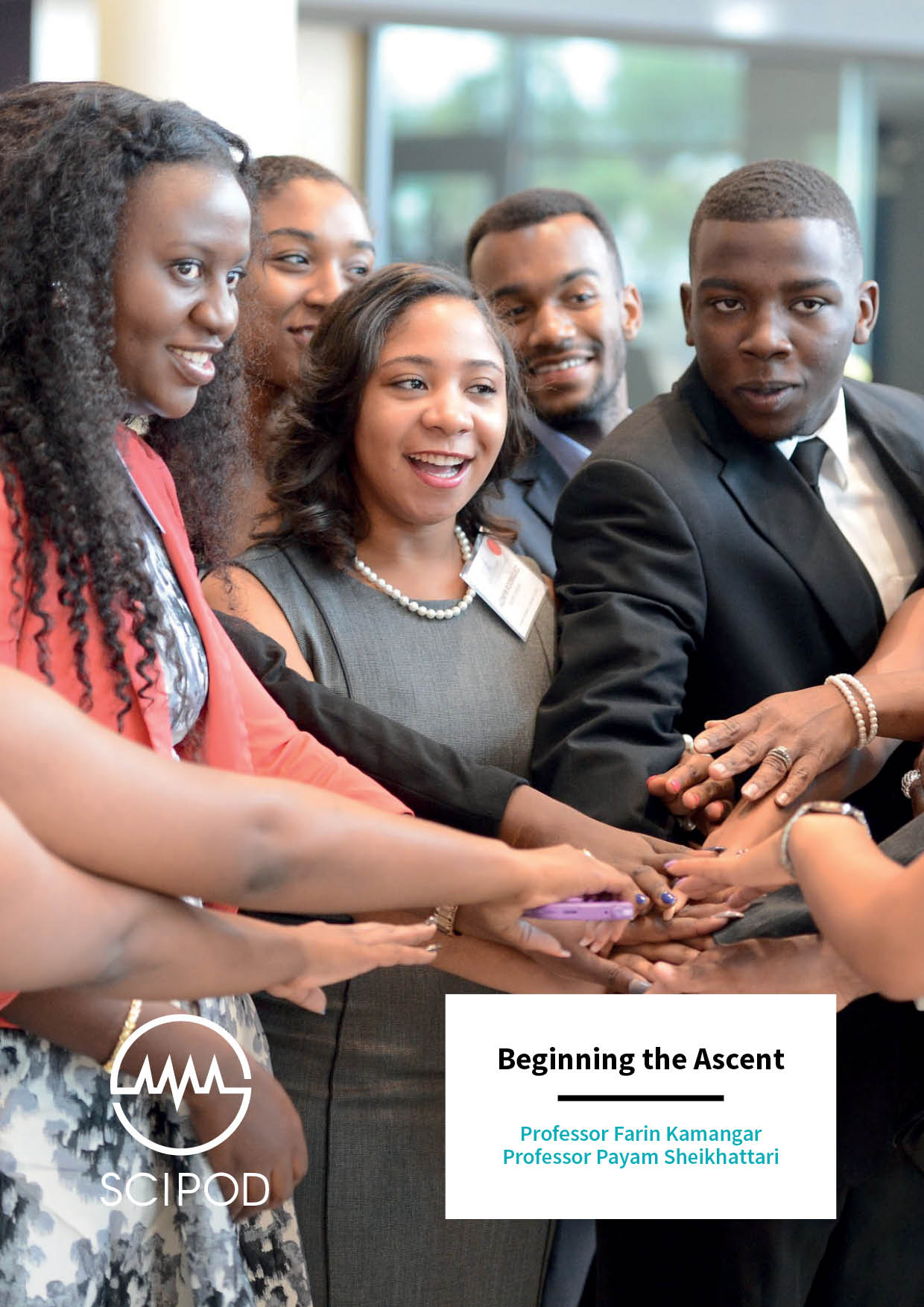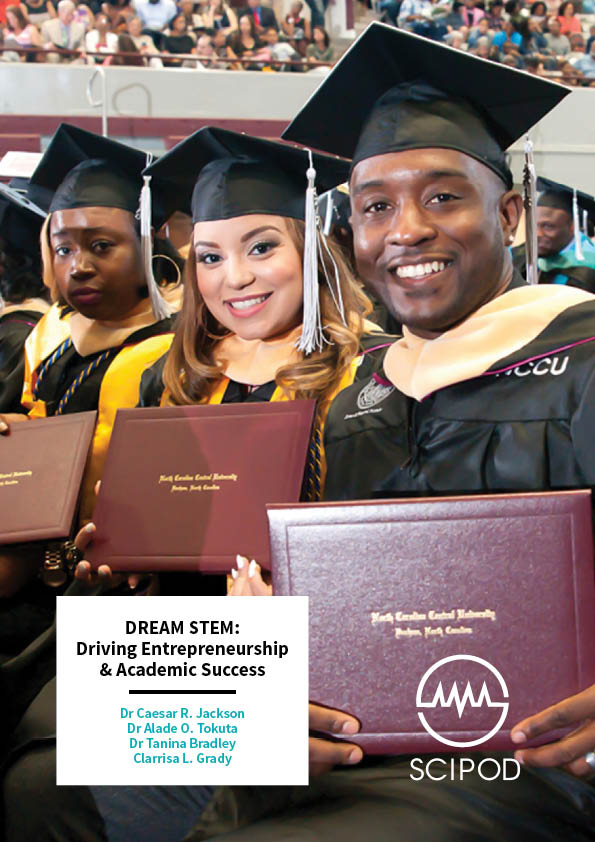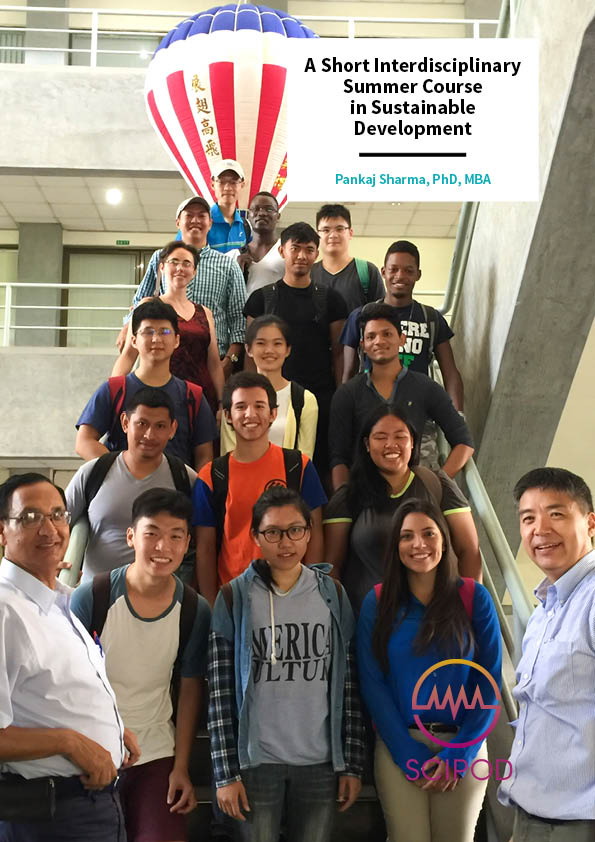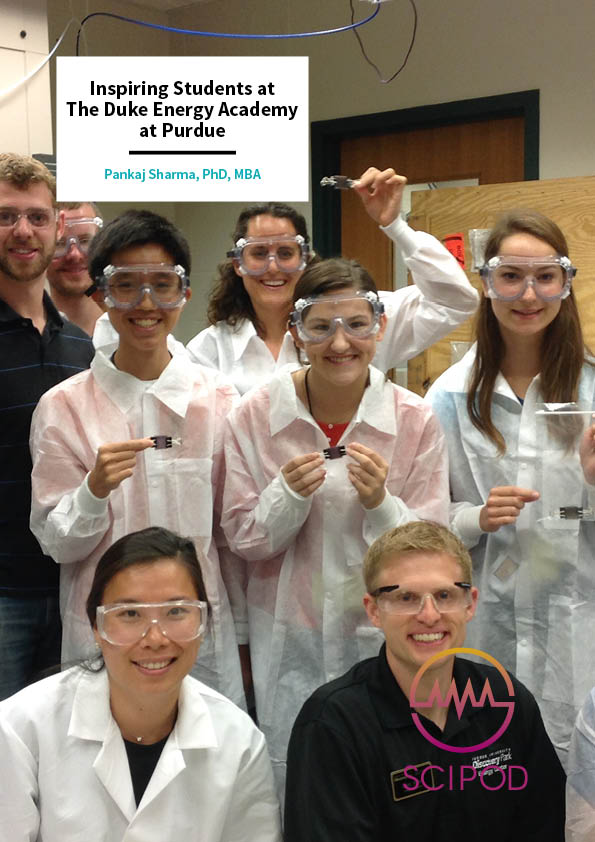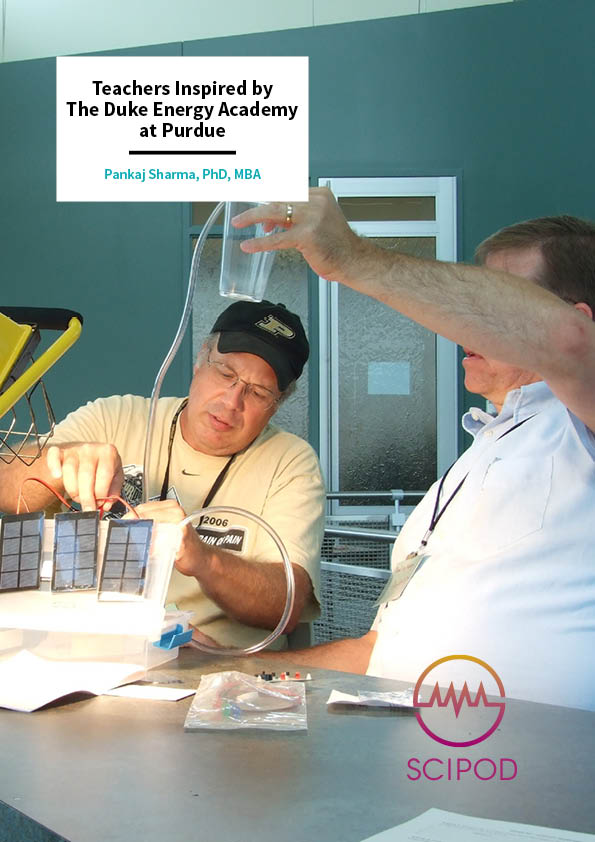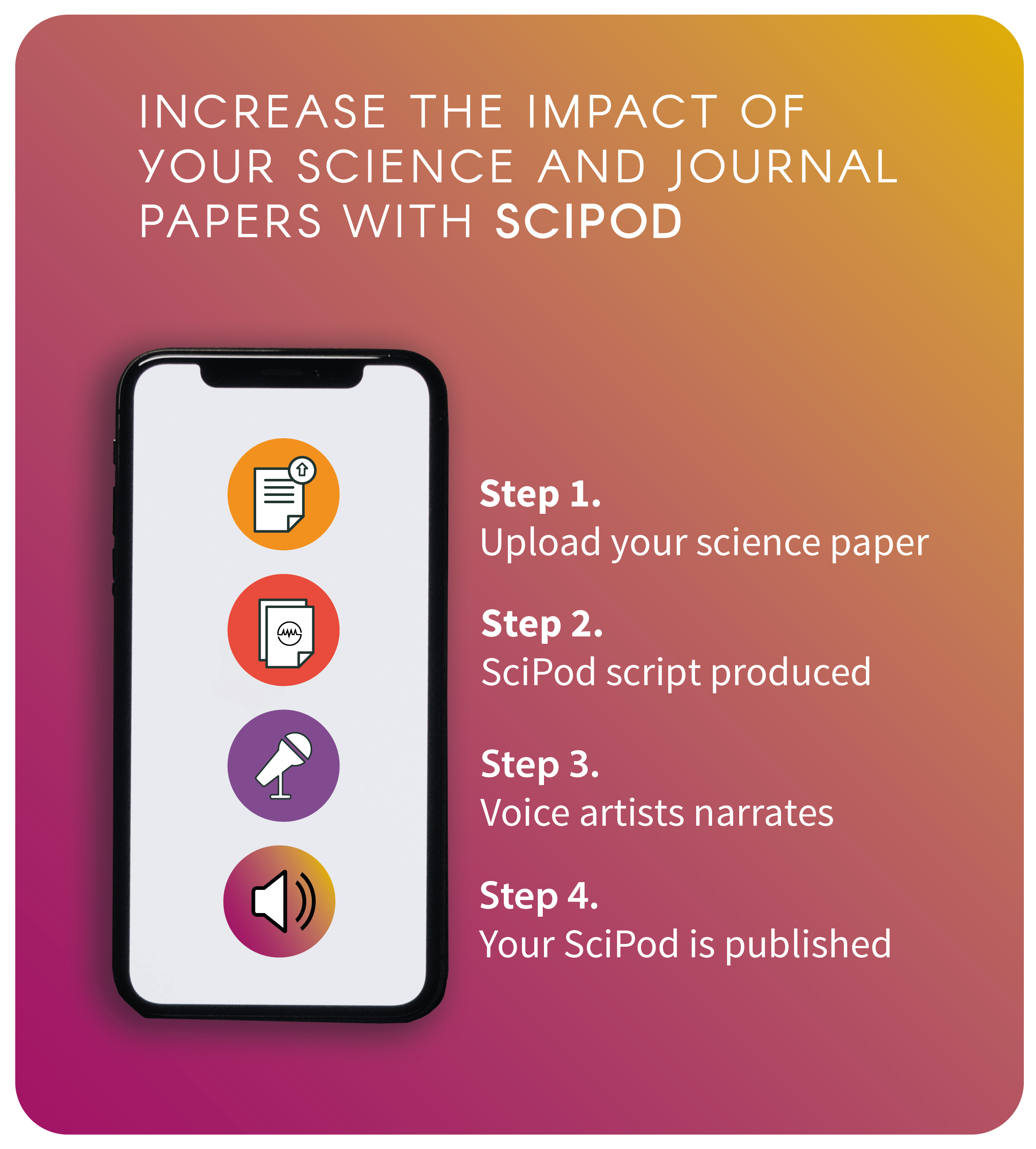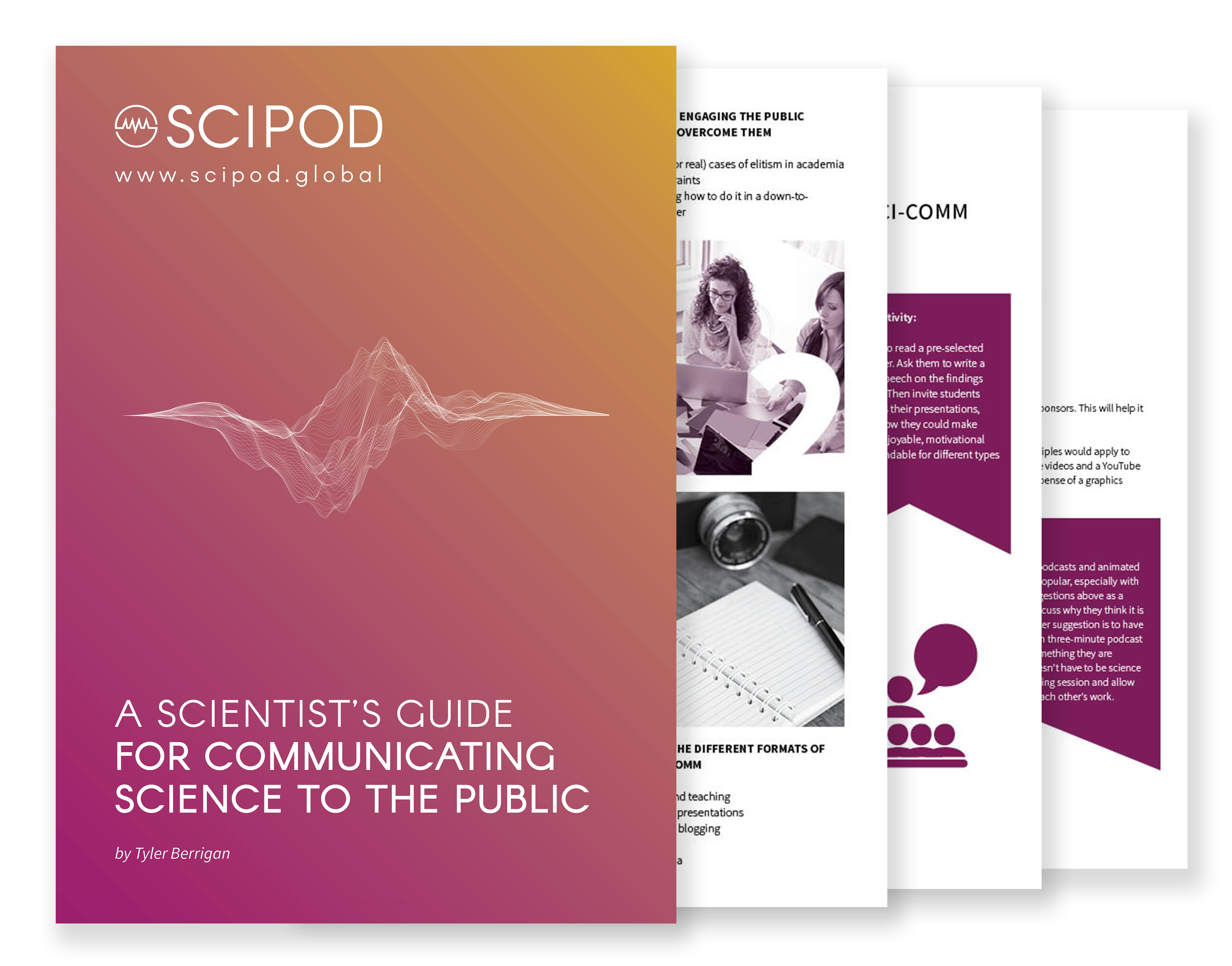Welcome to SciComm Radio
An exclusive interview series with leading scientists and science communicators
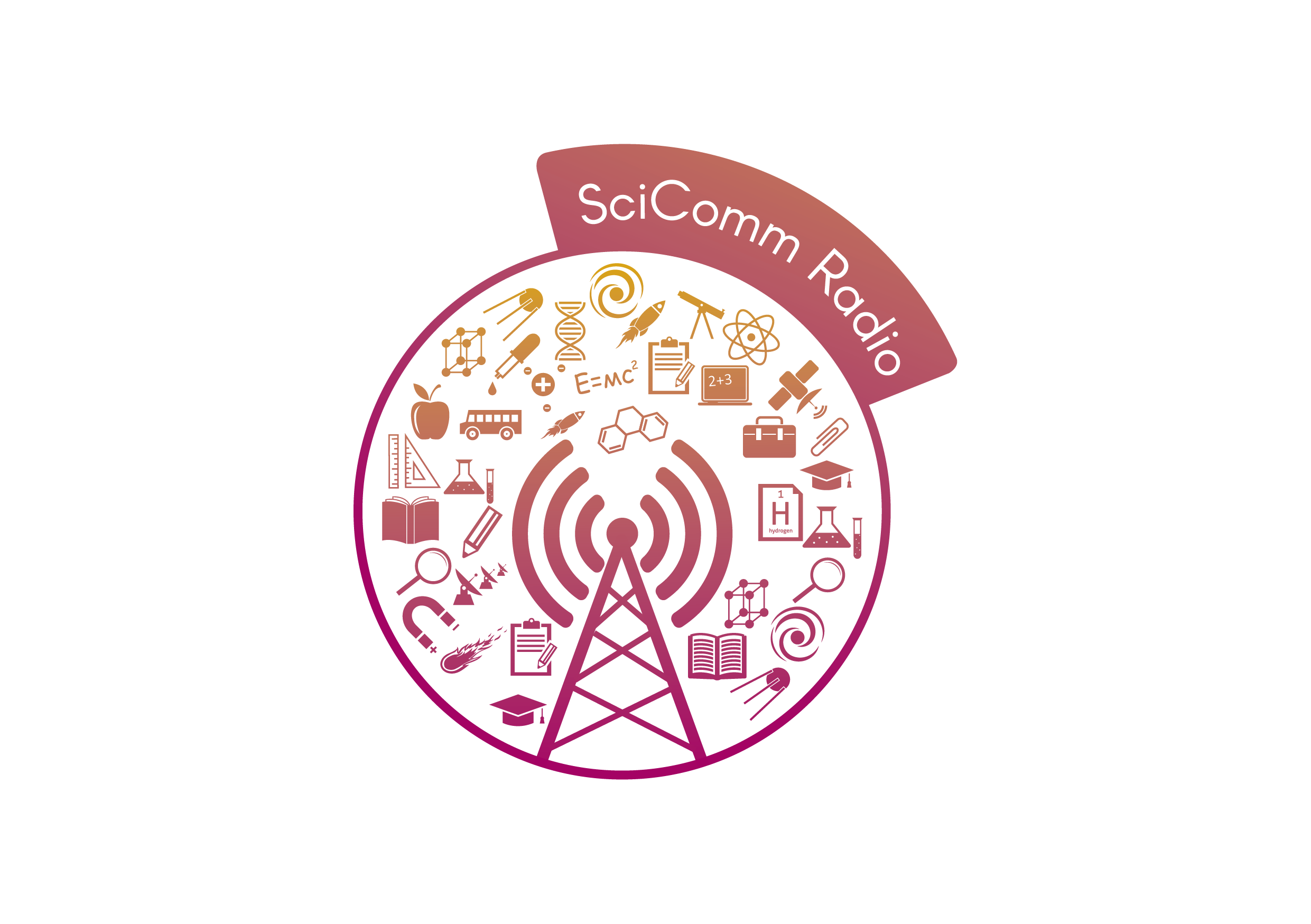
Click Below To Listen To A SciPod Radio Episode
Traditional Equilibrium Models Lead to Inaccurate Predictions – Dr Yousef Haseli, Central Michigan University
Traditional Equilibrium Models Lead to Inaccurate Predictions – Dr Yousef Haseli, Central Michigan University
Original Article Reference
https://doi.org/10.1016/j.ijhydene.2019.01.130
Share Episode
About this episode
This work is licensed under a Creative Commons Attribution 4.0 International License. 
What does this mean?
Share: You can copy and redistribute the material in any medium
or format
Adapt: You can change, and build upon the material for any
purpose, even commercially.
Credit: You must give appropriate credit, provide a link to the
license, and indicate if changes were made.
Related episodes
Increase the impact of your research
• Good science communication encourages everyday people to be scientifically literate so that they can analyse the integrity and legitimacy of information.
• Good science communication encourages people into STEM-related fields of study and employment.
• Good public science communication fosters a community around research that includes both members of the public, policymakers and scientists.
• In a recent survey, 75% of people suggested they would prefer to listen to an interesting story than read it.

Upload your science paper
Step 2
SciPod script written
Step 3
Voice audio recorded
Step 4
SciPod published
The Hidden Truths Of Machine Learning With Zack Lipton
The Hidden Truths Of Machine Learning With Zack Lipton
This week we discuss the hidden truths of machine learning, and how this new technology could undermine democracy as we know it, but is that even so bad…
Resources mentioned:
Zack’s website: http://zacklipton.com/
Zack’s Twitter: https://twitter.com/zacharylipton
More SciPod Radio episodes you may like
Join Our 7 part mini-series to guide you through creating a successful outreach and impact campaign called:
“Improving Science Communication And Impact: How To Get Your Research Heard”
The Evolution Of Science Journalism With Andy Ridgway – An Award Winning Journalist
The Evolution Of Science Journalism With Andy Ridgway – An Award Winning Journalist
This week we speak with Andy Ridgway, an award-winning journalist, he has spent nearly 20 years in the profession, most recently as Deputy Editor of BBC Focus and then launch Editor of Science Uncovered. We discuss the impact the internet, and notably, social media is having on the science journalism world. What’s changed, and importantly, what hasn’t.
Resources mentioned:
Andy’s university profile and contact information:https://people.uwe.ac.uk/Person/AndyRidgway
More SciPod Radio episodes you may like
Join Our 7 part mini-series to guide you through creating a successful outreach and impact campaign called:
“Improving Science Communication And Impact: How To Get Your Research Heard”
Astym Therapy – An Effective Treatment for Painful Scar Tissue
Astym Therapy – An Effective Treatment for Painful Scar Tissue
Original Article Reference
http://dx.doi.org/10.21037/atm.2018.11.49
Share Episode
About this episode
This work is licensed under a Creative Commons Attribution 4.0 International License. 
What does this mean?
Share: You can copy and redistribute the material in any medium
or format
Adapt: You can change, and build upon the material for any
purpose, even commercially.
Credit: You must give appropriate credit, provide a link to the
license, and indicate if changes were made.
Related episodes
Increase the impact of your research
• Good science communication encourages everyday people to be scientifically literate so that they can analyse the integrity and legitimacy of information.
• Good science communication encourages people into STEM-related fields of study and employment.
• Good public science communication fosters a community around research that includes both members of the public, policymakers and scientists.
• In a recent survey, 75% of people suggested they would prefer to listen to an interesting story than read it.

Upload your science paper
Step 2
SciPod script written
Step 3
Voice audio recorded
Step 4
SciPod published
Harnessing Genomics for Disease Resistance in Cucumbers, Melons and Squashes – Dr Rebecca Grumet, Michigan State University
Harnessing Genomics for Disease Resistance in Cucumbers, Melons and Squashes – Dr Rebecca Grumet, Michigan State University
Original Article Reference
https://doi.org/10.33548/SCIENTIA353
Share Episode
About this episode
This work is licensed under a Creative Commons Attribution 4.0 International License. 
What does this mean?
Share: You can copy and redistribute the material in any medium
or format
Adapt: You can change, and build upon the material for any
purpose, even commercially.
Credit: You must give appropriate credit, provide a link to the
license, and indicate if changes were made.
Related episodes
Increase the impact of your research
• Good science communication encourages everyday people to be scientifically literate so that they can analyse the integrity and legitimacy of information.
• Good science communication encourages people into STEM-related fields of study and employment.
• Good public science communication fosters a community around research that includes both members of the public, policymakers and scientists.
• In a recent survey, 75% of people suggested they would prefer to listen to an interesting story than read it.

Upload your science paper
Step 2
SciPod script written
Step 3
Voice audio recorded
Step 4
SciPod published
Is Social Media Influencing Our Opinions Or Exposing Them? We Discuss With Dominique Brossard
Is Social Media Influencing Our Opinions Or Exposing Them? We Discuss With Dominique Brossard
In this weeks episode, we discuss the good, the bad and the ugly impact social media and other modern communication methods are having on the way we form opinions. We’re joined by Dominique Brossard, an expert on media, science and policy, science and social media, public understanding of science, public attitudes toward controversial science. She sheds light on the impact of modern communication channels.
Resources mentioned:
Dominique’s university profile and contact information:https://experts.news.wisc.edu/experts/dominique-brossard
More SciPods Radio episodes you may like
Join Our 7 part mini-series to guide you through creating a successful outreach and impact campaign called:
“Improving Science Communication And Impact: How To Get Your Research Heard”
It’s Full STEM Ahead in After-School Programs – Dr Jerrod A. Henderson and Mr Ricky P. Greer, University of Houston
It’s Full STEM Ahead in After-School Programs – Dr Jerrod A. Henderson and Mr Ricky P. Greer, University of Houston
Original Article Reference
https://doi.org/10.33548/SCIENTIA347
Share Episode
About this episode
This work is licensed under a Creative Commons Attribution 4.0 International License. 
What does this mean?
Share: You can copy and redistribute the material in any medium
or format
Adapt: You can change, and build upon the material for any
purpose, even commercially.
Credit: You must give appropriate credit, provide a link to the
license, and indicate if changes were made.
Related episodes
Increase the impact of your research
• Good science communication encourages everyday people to be scientifically literate so that they can analyse the integrity and legitimacy of information.
• Good science communication encourages people into STEM-related fields of study and employment.
• Good public science communication fosters a community around research that includes both members of the public, policymakers and scientists.
• In a recent survey, 75% of people suggested they would prefer to listen to an interesting story than read it.

Upload your science paper
Step 2
SciPod script written
Step 3
Voice audio recorded
Step 4
SciPod published
From Coast to Coast Building Capacity in Ocean Science – Dr Edward R. Urban, University of Delaware
From Coast to Coast Building Capacity in Ocean Science – Dr Edward R. Urban, University of Delaware
Original Article Reference
https://doi.org/10.33548/SCIENTIA365
Share Episode
About this episode
This work is licensed under a Creative Commons Attribution 4.0 International License. 
What does this mean?
Share: You can copy and redistribute the material in any medium
or format
Adapt: You can change, and build upon the material for any
purpose, even commercially.
Credit: You must give appropriate credit, provide a link to the
license, and indicate if changes were made.
Related episodes
Increase the impact of your research
• Good science communication encourages everyday people to be scientifically literate so that they can analyse the integrity and legitimacy of information.
• Good science communication encourages people into STEM-related fields of study and employment.
• Good public science communication fosters a community around research that includes both members of the public, policymakers and scientists.
• In a recent survey, 75% of people suggested they would prefer to listen to an interesting story than read it.

Upload your science paper
Step 2
SciPod script written
Step 3
Voice audio recorded
Step 4
SciPod published
Meet The Delightful Rachelle Saunders From Science For The People
Meet The Delightful Rachelle Saunders From Science For The People
In this episode we speak with the delightful and upbeat Rachelle Saunders From Science For The People Podcast and how their podcast is impacting people.
Resources mentioned:
Science For The People website: http://www.scienceforthepeople.ca/
Science For The People Twitter: https://twitter.com/sci4thepeople
Rachelle’s website: http://rachellesaunders.com/
More SciPods Radio episodes you may like
Join Our 7 part mini-series to guide you through creating a successful outreach and impact campaign called:
“Improving Science Communication And Impact: How To Get Your Research Heard”
Oh Dam Look, That Beaver Just Put Out A Forest Fire! With Emily Fairfax
Oh Dam Look, That Beaver Just Put Out A Forest Fire! With Emily Fairfax
Today we talk with Emily Fairfax about beavers. They were almost wiped out through over trapping, but now they’re making a comeback and stopping forest fires in the process… Listen to learn about these amazing animals.
Resources mentioned:
Emily’s website: https://emilyfairfaxscience.com/
Emily’s twitter: https://twitter.com/EmilyFairfax
More SciPods Radio episodes you may like
Join Our 7 part mini-series to guide you through creating a successful outreach and impact campaign called:
“Improving Science Communication And Impact: How To Get Your Research Heard”
A New Model for Developing Students’ Deep-Learning Skills – Dr Yianna Vovides, Georgetown University
A New Model for Developing Students’ Deep-Learning Skills – Dr Yianna Vovides, Georgetown University
Original article reference:
This SciPod is a summary of the paper ‘Elusive learning – using learning analytics to support reflective sensemaking of Ill-Structured ethical problems: A learner-managed dashboard solution’, from Future Internet. https://doi.org/10.3390/fi8020026
Share Episode
About this episode
Online education has recently experienced a surge in popularity, and this trend is set to continue. Through online learning, individuals who are unable to take courses on campus, due to family, work or financial pressures, now have the opportunity to pursue university degrees. However, one shortfall of online education is that it often fails to develop students’ deep-learning skills, which are required for effectively tackling complex problems. In a recent study, Dr Yianna Vovides of Georgetown University investigated this issue.
This work is licensed under a Creative Commons Attribution 4.0 International License. 
What does this mean?
Share: You can copy and redistribute the material in any medium
or format
Adapt: You can change, and build upon the material for any
purpose, even commercially.
Credit: You must give appropriate credit, provide a link to the
license, and indicate if changes were made.
Related episodes
Increase the impact of your research
• Good science communication encourages everyday people to be scientifically literate so that they can analyse the integrity and legitimacy of information.
• Good science communication encourages people into STEM-related fields of study and employment.
• Good public science communication fosters a community around research that includes both members of the public, policymakers and scientists.
• In a recent survey, 75% of people suggested they would prefer to listen to an interesting story than read it.

Upload your science paper
Step 2
SciPod script written
Step 3
Voice audio recorded
Step 4
SciPod published
From Testing For Chemical Weapons To Pain Relief With CBD. Andrea Holmes Shares Her Story
From Testing For Chemical Weapons To Pain Relief With CBD. Andrea Holmes Shares Her Story
In this episode Andrea Holmes shares her journey from creating an app for testing for chemicals to now working with a start up delivering pain relief through CBD.
More SciPods Radio episodes you may like
Join Our 7 part mini-series to guide you through creating a successful outreach and impact campaign called:
“Improving Science Communication And Impact: How To Get Your Research Heard”
Searching For The Beginning Of The Universe With Brian Keating
Searching For The Beginning Of The Universe With Brian Keating
In this episode we speak with Brian Keating about his research on looking for the start of the universe. And we also explore the ethics around the Nobel Prize.
Resources mentioned:
Brian’s website: https://briankeating.com/
Grab a copy of “Losing The Nobel Prize” here
More SciPods Radio episodes you may like
Join Our 7 part mini-series to guide you through creating a successful outreach and impact campaign called:
“Improving Science Communication And Impact: How To Get Your Research Heard”
Can We Effectively Predict Earthquakes..? With Luca Dal Zilio
Can We Effectively Predict Earthquakes..? With Luca Dal Zilio
Resources mentioned:
Luca’s personal webpage: www.gps.caltech.edu/~dalzilio/
Twitter: https://twitter.com/lucadalzilio (@lucadalzilio)
Caltech SeismoLab: http://www.seismolab.caltech.edu
Geohazard International (GHI): https://www.geohaz.org
United States Geological Survey (USGS) Earthquake Hazards Program: https://earthquake.usgs.gov/learn/preparedness.php
More SciPods Radio episodes you may like
Join Our 7 part mini-series to guide you through creating a successful outreach and impact campaign called:
“Improving Science Communication And Impact: How To Get Your Research Heard”
The Impact of Our Environment on Our Well-being – Dr Lei Cao, The Ohio State University
The Impact of Our Environment on Our Well-being – Dr Lei Cao, The Ohio State University
Original Article Reference
https://doi.org/10.33548/SCIENTIA345
Share Episode
About this episode
This work is licensed under a Creative Commons Attribution 4.0 International License. 
What does this mean?
Share: You can copy and redistribute the material in any medium
or format
Adapt: You can change, and build upon the material for any
purpose, even commercially.
Credit: You must give appropriate credit, provide a link to the
license, and indicate if changes were made.
Related episodes
Increase the impact of your research
• Good science communication encourages everyday people to be scientifically literate so that they can analyse the integrity and legitimacy of information.
• Good science communication encourages people into STEM-related fields of study and employment.
• Good public science communication fosters a community around research that includes both members of the public, policymakers and scientists.
• In a recent survey, 75% of people suggested they would prefer to listen to an interesting story than read it.

Upload your science paper
Step 2
SciPod script written
Step 3
Voice audio recorded
Step 4
SciPod published
Enhancing the Efficacy of Immunotherapeutic Drugs for Prostate Cancer – Dr Douglas McNeel, MD PhD, University of Wisconsin
Enhancing the Efficacy of Immunotherapeutic Drugs for Prostate Cancer – Dr Douglas McNeel, MD PhD, University of Wisconsin
Original Article Reference
https://doi.org/10.33548/SCIENTIA346
Share Episode
About this episode
This work is licensed under a Creative Commons Attribution 4.0 International License. 
What does this mean?
Share: You can copy and redistribute the material in any medium
or format
Adapt: You can change, and build upon the material for any
purpose, even commercially.
Credit: You must give appropriate credit, provide a link to the
license, and indicate if changes were made.
Related episodes
Increase the impact of your research
• Good science communication encourages everyday people to be scientifically literate so that they can analyse the integrity and legitimacy of information.
• Good science communication encourages people into STEM-related fields of study and employment.
• Good public science communication fosters a community around research that includes both members of the public, policymakers and scientists.
• In a recent survey, 75% of people suggested they would prefer to listen to an interesting story than read it.

Upload your science paper
Step 2
SciPod script written
Step 3
Voice audio recorded
Step 4
SciPod published
How To Help Bumblebees Before The World Ends… With Dave Goulson
How To Help Bumblebees Before The World Ends… With Dave Goulson
In this episode of SciPod Radio we talk with Dave Goulson about his research on bumblebees. We cover why they’re so important to our existence, how to get more involved with bees if your a keen gardener, and even how you can help if you’re not green-fingered or you don’t have a garden…
Resources mentioned:
Best garden flowers for bees: http://www.sussex.ac.uk/lifesci/goulsonlab/resources/flowers
For Dave’s new book click here: “The Garden Jungle: or Gardening to Save the Planet”
More SciPods Radio episodes you may like
Join Our 7 part mini-series to guide you through creating a successful outreach and impact campaign called:
“Improving Science Communication And Impact: How To Get Your Research Heard”
Investigating the Evolution of Star Formation with Millimetre Wave Astronomy – Dr Reinhard Genzel, Dr Linda Jean Tacconi, Dr Karl-Friedrich Schuster
Investigating the Evolution of Star Formation with Millimetre Wave Astronomy – Dr Reinhard Genzel, Dr Linda Jean Tacconi, Dr Karl-Friedrich Schuster
Original Article Reference
https://doi.org/10.33548/SCIENTIA317
Share Episode
About this episode
This work is licensed under a Creative Commons Attribution 4.0 International License. 
What does this mean?
Share: You can copy and redistribute the material in any medium
or format
Adapt: You can change, and build upon the material for any
purpose, even commercially.
Credit: You must give appropriate credit, provide a link to the
license, and indicate if changes were made.
Related episodes
Increase the impact of your research
• Good science communication encourages everyday people to be scientifically literate so that they can analyse the integrity and legitimacy of information.
• Good science communication encourages people into STEM-related fields of study and employment.
• Good public science communication fosters a community around research that includes both members of the public, policymakers and scientists.
• In a recent survey, 75% of people suggested they would prefer to listen to an interesting story than read it.

Upload your science paper
Step 2
SciPod script written
Step 3
Voice audio recorded
Step 4
SciPod published
Efficacy of Wholefoods for Health and Cancer Prevention – Dr Elizabeth Ryan, Colorado State University
Efficacy of Wholefoods for Health and Cancer Prevention – Dr Elizabeth Ryan, Colorado State University
Original Article Reference
https://doi.org/10.33548/SCIENTIA341
Share Episode
About this episode
This work is licensed under a Creative Commons Attribution 4.0 International License. 
What does this mean?
Share: You can copy and redistribute the material in any medium
or format
Adapt: You can change, and build upon the material for any
purpose, even commercially.
Credit: You must give appropriate credit, provide a link to the
license, and indicate if changes were made.
Related episodes
Increase the impact of your research
• Good science communication encourages everyday people to be scientifically literate so that they can analyse the integrity and legitimacy of information.
• Good science communication encourages people into STEM-related fields of study and employment.
• Good public science communication fosters a community around research that includes both members of the public, policymakers and scientists.
• In a recent survey, 75% of people suggested they would prefer to listen to an interesting story than read it.

Upload your science paper
Step 2
SciPod script written
Step 3
Voice audio recorded
Step 4
SciPod published
OPT IN! – Generating Experts In The Field Of Optics – Dr Alexis Vogt, State University Of New York
OPT IN! – Generating Experts In The Field Of Optics – Dr Alexis Vogt, State University Of New York
Original Article Reference
https://doi.org/10.26320/SCIENTIA315
Share Episode
About this episode
This work is licensed under a Creative Commons Attribution 4.0 International License. 
What does this mean?
Share: You can copy and redistribute the material in any medium
or format
Adapt: You can change, and build upon the material for any
purpose, even commercially.
Credit: You must give appropriate credit, provide a link to the
license, and indicate if changes were made.
Related episodes
Increase the impact of your research
• Good science communication encourages everyday people to be scientifically literate so that they can analyse the integrity and legitimacy of information.
• Good science communication encourages people into STEM-related fields of study and employment.
• Good public science communication fosters a community around research that includes both members of the public, policymakers and scientists.
• In a recent survey, 75% of people suggested they would prefer to listen to an interesting story than read it.

Upload your science paper
Step 2
SciPod script written
Step 3
Voice audio recorded
Step 4
SciPod published
Probing the Link Between Perinatal Nutrition and Puberty in Cattle – Dr Gary Williams and Dr Rodolfo Cardoso, Texas A&M University
Probing the Link Between Perinatal Nutrition and Puberty in Cattle – Dr Gary Williams and Dr Rodolfo Cardoso, Texas A&M University
Original Article Reference
https://doi.org/10.33548/SCIENTIA340
Share Episode
About this episode
This work is licensed under a Creative Commons Attribution 4.0 International License. 
What does this mean?
Share: You can copy and redistribute the material in any medium
or format
Adapt: You can change, and build upon the material for any
purpose, even commercially.
Credit: You must give appropriate credit, provide a link to the
license, and indicate if changes were made.
Related episodes
Increase the impact of your research
• Good science communication encourages everyday people to be scientifically literate so that they can analyse the integrity and legitimacy of information.
• Good science communication encourages people into STEM-related fields of study and employment.
• Good public science communication fosters a community around research that includes both members of the public, policymakers and scientists.
• In a recent survey, 75% of people suggested they would prefer to listen to an interesting story than read it.

Upload your science paper
Step 2
SciPod script written
Step 3
Voice audio recorded
Step 4
SciPod published
Teaching the Genome Generation – Dr Charles Wray, The Jackson Laboratory
Teaching the Genome Generation – Dr Charles Wray, The Jackson Laboratory
Original Article Reference
https://doi.org/10.26320/SCIENTIA308
Share Episode
About this episode
This work is licensed under a Creative Commons Attribution 4.0 International License. 
What does this mean?
Share: You can copy and redistribute the material in any medium
or format
Adapt: You can change, and build upon the material for any
purpose, even commercially.
Credit: You must give appropriate credit, provide a link to the
license, and indicate if changes were made.
Related episodes
Increase the impact of your research
• Good science communication encourages everyday people to be scientifically literate so that they can analyse the integrity and legitimacy of information.
• Good science communication encourages people into STEM-related fields of study and employment.
• Good public science communication fosters a community around research that includes both members of the public, policymakers and scientists.
• In a recent survey, 75% of people suggested they would prefer to listen to an interesting story than read it.

Upload your science paper
Step 2
SciPod script written
Step 3
Voice audio recorded
Step 4
SciPod published
An Arts-based Approach to Science Communication Training – Dr Daniel J. McGarvey and Sarah E. Faris
An Arts-based Approach to Science Communication Training – Dr Daniel J. McGarvey and Sarah E. Faris
Original Article Reference
https://doi.org/10.26320/SCIENTIA311
Share Episode
About this episode
This work is licensed under a Creative Commons Attribution 4.0 International License. 
What does this mean?
Share: You can copy and redistribute the material in any medium
or format
Adapt: You can change, and build upon the material for any
purpose, even commercially.
Credit: You must give appropriate credit, provide a link to the
license, and indicate if changes were made.
Related episodes
Increase the impact of your research
• Good science communication encourages everyday people to be scientifically literate so that they can analyse the integrity and legitimacy of information.
• Good science communication encourages people into STEM-related fields of study and employment.
• Good public science communication fosters a community around research that includes both members of the public, policymakers and scientists.
• In a recent survey, 75% of people suggested they would prefer to listen to an interesting story than read it.

Upload your science paper
Step 2
SciPod script written
Step 3
Voice audio recorded
Step 4
SciPod published
The Role of Human Motivation in Achieving Organisational Sustainability – Professor Martina Blašková, University of Žilina
The Role of Human Motivation in Achieving Organisational Sustainability – Professor Martina Blašková, University of Žilina
Original Article Reference
This SciPod is a summary of the paper ‘Responsible Decision making for Sustainable Motivation’, from Sustainability, an MDPI journal. https://doi.org/10.3390/su10103393
Share Episode
About this episode
This work is licensed under a Creative Commons Attribution 4.0 International License. 
What does this mean?
Share: You can copy and redistribute the material in any medium
or format
Adapt: You can change, and build upon the material for any
purpose, even commercially.
Credit: You must give appropriate credit, provide a link to the
license, and indicate if changes were made.
Related episodes
Increase the impact of your research
• Good science communication encourages everyday people to be scientifically literate so that they can analyse the integrity and legitimacy of information.
• Good science communication encourages people into STEM-related fields of study and employment.
• Good public science communication fosters a community around research that includes both members of the public, policymakers and scientists.
• In a recent survey, 75% of people suggested they would prefer to listen to an interesting story than read it.

Upload your science paper
Step 2
SciPod script written
Step 3
Voice audio recorded
Step 4
SciPod published
Analysing Earth’s Magnetospheric System A Web of Interconnections – Dr Joseph E. Borovsky, Space Science Institute
Analysing Earth’s Magnetospheric System A Web of Interconnections – Dr Joseph E. Borovsky, Space Science Institute
Original Article Reference
https://doi.org/10.26320/SCIENTIA302
Share Episode
About this episode
This work is licensed under a Creative Commons Attribution 4.0 International License. 
What does this mean?
Share: You can copy and redistribute the material in any medium
or format
Adapt: You can change, and build upon the material for any
purpose, even commercially.
Credit: You must give appropriate credit, provide a link to the
license, and indicate if changes were made.
Related episodes
Increase the impact of your research
• Good science communication encourages everyday people to be scientifically literate so that they can analyse the integrity and legitimacy of information.
• Good science communication encourages people into STEM-related fields of study and employment.
• Good public science communication fosters a community around research that includes both members of the public, policymakers and scientists.
• In a recent survey, 75% of people suggested they would prefer to listen to an interesting story than read it.

Upload your science paper
Step 2
SciPod script written
Step 3
Voice audio recorded
Step 4
SciPod published
Beginning the Ascent – Professor Farin Kamangar and Professor Payam Sheikhattari
Beginning the Ascent – Professor Farin Kamangar and Professor Payam Sheikhattari
Original Article Reference
https://doi.org/10.33548/SCIENTIA334
Share Episode
About this episode
This work is licensed under a Creative Commons Attribution 4.0 International License. 
What does this mean?
Share: You can copy and redistribute the material in any medium
or format
Adapt: You can change, and build upon the material for any
purpose, even commercially.
Credit: You must give appropriate credit, provide a link to the
license, and indicate if changes were made.
Related episodes
Increase the impact of your research
• Good science communication encourages everyday people to be scientifically literate so that they can analyse the integrity and legitimacy of information.
• Good science communication encourages people into STEM-related fields of study and employment.
• Good public science communication fosters a community around research that includes both members of the public, policymakers and scientists.
• In a recent survey, 75% of people suggested they would prefer to listen to an interesting story than read it.

Upload your science paper
Step 2
SciPod script written
Step 3
Voice audio recorded
Step 4
SciPod published
DREAM STEM: Driving Entrepreneurship & Academic Success
DREAM STEM: Driving Entrepreneurship & Academic Success
Original Article Reference
https://doi.org/10.33548/SCIENTIA426
Share Episode
About this episode
This work is licensed under a Creative Commons Attribution 4.0 International License. 
What does this mean?
Share: You can copy and redistribute the material in any medium
or format
Adapt: You can change, and build upon the material for any
purpose, even commercially.
Credit: You must give appropriate credit, provide a link to the
license, and indicate if changes were made.
Related episodes
Increase the impact of your research
• Good science communication encourages everyday people to be scientifically literate so that they can analyse the integrity and legitimacy of information.
• Good science communication encourages people into STEM-related fields of study and employment.
• Good public science communication fosters a community around research that includes both members of the public, policymakers and scientists.
• In a recent survey, 75% of people suggested they would prefer to listen to an interesting story than read it.

Upload your science paper
Step 2
SciPod script written
Step 3
Voice audio recorded
Step 4
SciPod published
A Short Interdisciplinary Summer Course in Sustainable Development – Pankaj Sharma, PhD, MBA, Purdue University
A Short Interdisciplinary Summer Course in Sustainable Development – Pankaj Sharma, PhD, MBA, Purdue University
Original Article Reference
https://doi.org/10.26320/SCIENTIA304
Share Episode
About this episode
This work is licensed under a Creative Commons Attribution 4.0 International License. 
What does this mean?
Share: You can copy and redistribute the material in any medium
or format
Adapt: You can change, and build upon the material for any
purpose, even commercially.
Credit: You must give appropriate credit, provide a link to the
license, and indicate if changes were made.
Related episodes
Increase the impact of your research
• Good science communication encourages everyday people to be scientifically literate so that they can analyse the integrity and legitimacy of information.
• Good science communication encourages people into STEM-related fields of study and employment.
• Good public science communication fosters a community around research that includes both members of the public, policymakers and scientists.
• In a recent survey, 75% of people suggested they would prefer to listen to an interesting story than read it.

Upload your science paper
Step 2
SciPod script written
Step 3
Voice audio recorded
Step 4
SciPod published
Inspiring Students at The Duke Energy Academy at Purdue – Pankaj Sharma, PhD, MBA
Inspiring Students at The Duke Energy Academy at Purdue – Pankaj Sharma, PhD, MBA
Original Article Reference
https://doi.org/10.26320/SCIENTIA307
Share Episode
About this episode
This work is licensed under a Creative Commons Attribution 4.0 International License. 
What does this mean?
Share: You can copy and redistribute the material in any medium
or format
Adapt: You can change, and build upon the material for any
purpose, even commercially.
Credit: You must give appropriate credit, provide a link to the
license, and indicate if changes were made.
Related episodes
Increase the impact of your research
• Good science communication encourages everyday people to be scientifically literate so that they can analyse the integrity and legitimacy of information.
• Good science communication encourages people into STEM-related fields of study and employment.
• Good public science communication fosters a community around research that includes both members of the public, policymakers and scientists.
• In a recent survey, 75% of people suggested they would prefer to listen to an interesting story than read it.

Upload your science paper
Step 2
SciPod script written
Step 3
Voice audio recorded
Step 4
SciPod published
Teachers Inspired by The Duke Energy Academy at Purdue – Pankaj Sharma, PhD, MBA
Teachers Inspired by The Duke Energy Academy at Purdue – Pankaj Sharma, PhD, MBA
Original Article Reference
https://doi.org/10.26320/SCIENTIA305
Share Episode
About this episode
This work is licensed under a Creative Commons Attribution 4.0 International License. 
What does this mean?
Share: You can copy and redistribute the material in any medium
or format
Adapt: You can change, and build upon the material for any
purpose, even commercially.
Credit: You must give appropriate credit, provide a link to the
license, and indicate if changes were made.
Related episodes
Increase the impact of your research
• Good science communication encourages everyday people to be scientifically literate so that they can analyse the integrity and legitimacy of information.
• Good science communication encourages people into STEM-related fields of study and employment.
• Good public science communication fosters a community around research that includes both members of the public, policymakers and scientists.
• In a recent survey, 75% of people suggested they would prefer to listen to an interesting story than read it.

Upload your science paper
Step 2
SciPod script written
Step 3
Voice audio recorded
Step 4
SciPod published

